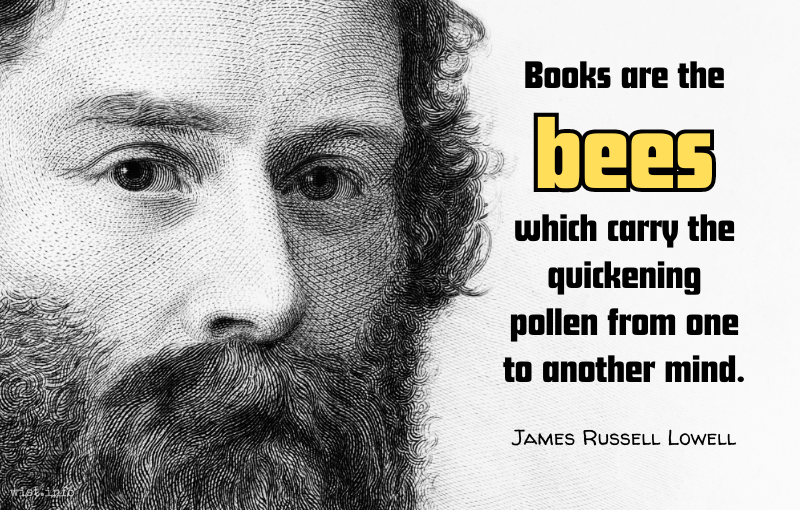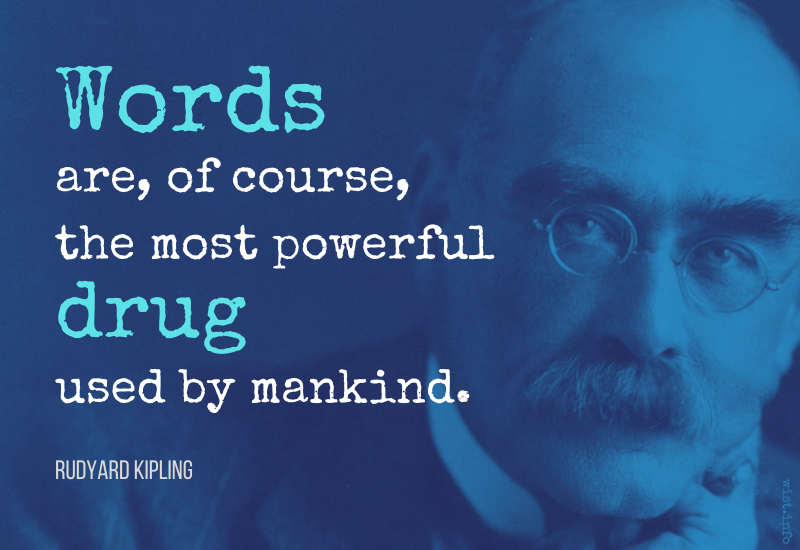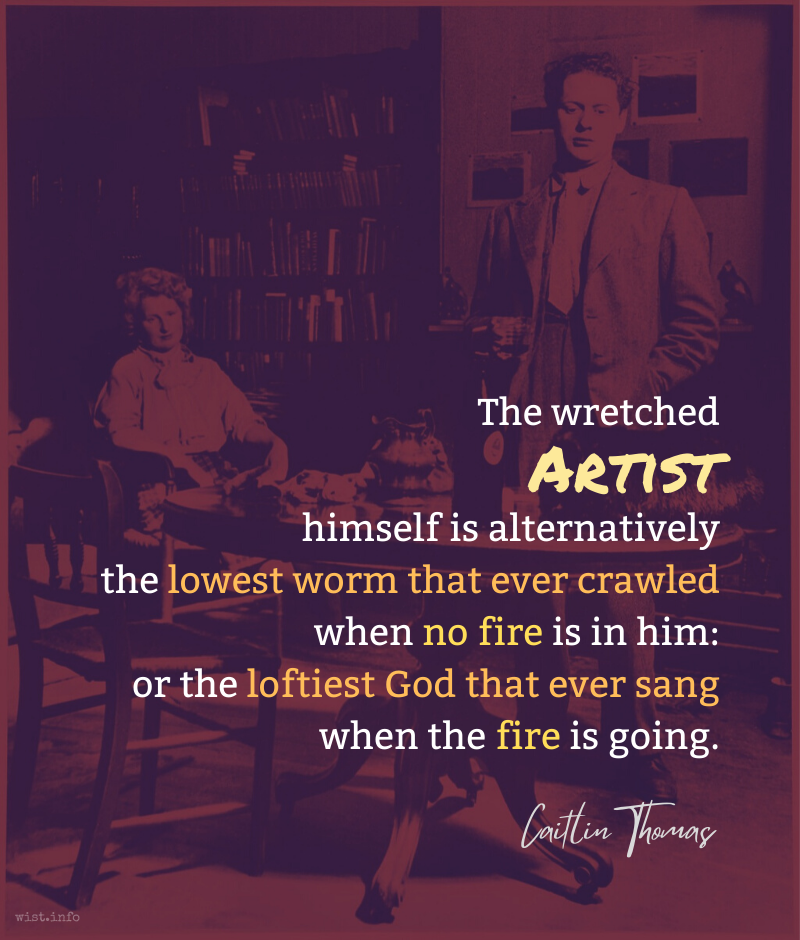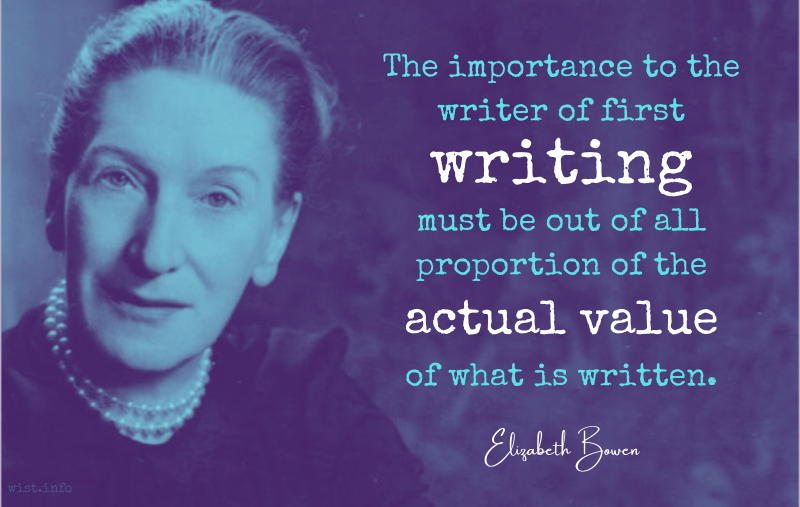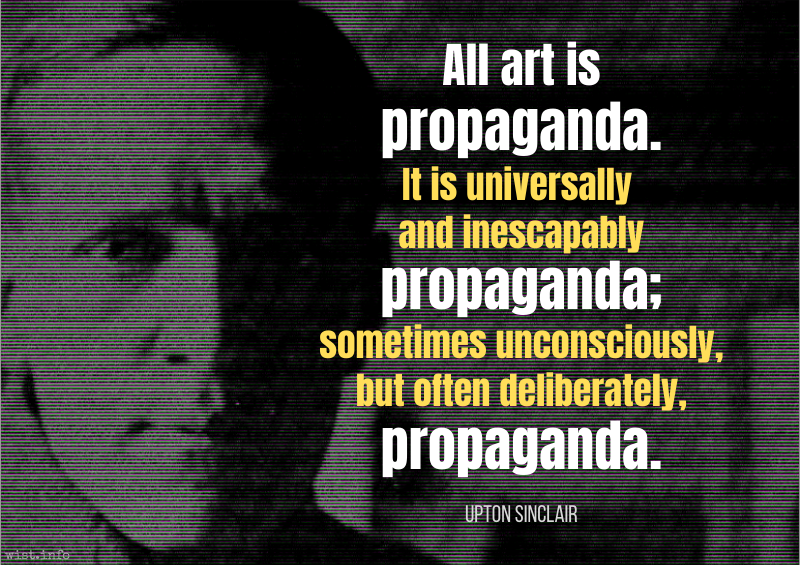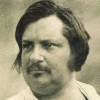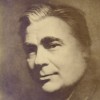The war that Tolkien wrote about was a war for the fate of civilization and the future of humanity, and that’s become the template. I’m not sure that it’s a good template, though. The Tolkien model led generations of fantasy writers to produce these endless series of dark lords and their evil minions who are all very ugly and wear black clothes. But the vast majority of wars throughout history are not like that.
George R. R. Martin (b. 1948) American author and screenwriter [George Raymond Richard Martin]
Interview (2014-04-23) by Mikal Gilmore, “The Rolling Stone Interview,” Rolling Stone
(Source)
Quotations about:
writing
Note not all quotations have been tagged, so Search may find additional quotes on this topic.
Nothing I had written before “Mary Poppins” had anything to do with children, and I have always assumed, when I thought about it at all, that she had come out of the same well of nothingness as the poetry, myth and legend that had absorbed me all my writing life. If I had been told while I was working on the book that I was doing it for children, I think I would have been terrified.
P. L. Travers (1899-1996) Australian-British writer [Pamela Lyndon Travers; b. Helen Lyndon Goff]
Essay (1978-07-02), “I Never Wrote for Children,” New York Times
(Source)
You do not chop off a section of your imaginative substance and make a book specifically for children, for — if you are honest — you have no idea where childhood ends and maturity begins. It is all endless and all one.
P. L. Travers (1899-1996) Australian-British writer [Pamela Lyndon Travers; b. Helen Lyndon Goff]
Essay (1978-07-02), “I Never Wrote for Children,” New York Times
(Source)
You may choose your word like a connoisseur,
And polish it up with art,
But the word that sways, and stirs, and stays,
Is the word that comes from the heart.Ella Wheeler Wilcox (1850-1919) American author and poet.
“The Word,” st. 2, New Thought Pastels (1906)
(Source)
Authors are actors, books are theaters.
He that can compose himself, is wiser than he that composes books.
Benjamin Franklin (1706-1790) American statesman, scientist, philosopher, aphorist
Poor Richard (1737 ed.)
(Source)
Writing is perhaps the greatest of human inventions, binding together people, citizens of distant epochs, who never knew one another. Books break the shackles of time, proof that humans can work magic.
Carl Sagan (1934-1996) American scientist and writer
Cosmos, ch. 11 “The Persistence of Memory” (1980)
(Source)
For me, reason is the natural organ of truth; but imagination is the organ of meaning. Imagination, producing new metaphors or revivifying old, is not the cause of truth, but its condition.
C. S. Lewis (1898-1963) English writer, literary scholar, lay theologian [Clive Staples Lewis]
“Bluspels and Flalansferes: A Semantic Nightmare” (1936), Rehabilitations and Other Essays (1939)
(Source)
First given as a lecture at Manchester University.
A book is made from a tree. It is an assemblage of flat, flexible parts (still called “leaves”) imprinted with dark pigmented squiggles. One glance at it and you hear the voice of another person, perhaps someone dead for thousands of years. Across the millennia, the author is speaking, clearly and silently, inside your head, directly to you.
It is impossible to pursue a successful literary career and follow the advice of all one’s “best friends.” I have received severe censure from my orthodox friends for writing liberal verses. My liberal friends condemn my devout and religious poems as “aiding superstition.” My early temperance verses were pronounced “fanatical trash” by others.
With all due thanks and appreciation for the kind motives which interest so many dear friends in my career, I yet feel compelled to follow the light which my own intellect and judgment cast upon my way, rather than any one of the many conflicting rays which other minds would lend me.
A book is a version of the world. If you do not like it, ignore it; or offer your own version in return.
Salman Rushdie (b. 1947) Indian novelist
“In Good Faith” (1990), Imaginary Homelands: Essays and Criticism, 1981-1991 (1992)
(Source)
Oh, you who read some song that I have sung,
What know you of the soul from whence it sprung?
Dost dream the poet ever speaks aloud
His secret thought unto the listening crowd?
Go take the murmuring sea-shell from the shore:
You have its shape, its color and no more.
It tells not one of those vast mysteries
That lie beneath the surface of the seas.
Our songs are shells, cast out by-waves of thought;
Here, take them at your pleasure; but think not
You’ve seen beneath the surface of the waves,
Where lie our shipwrecks and our coral caves.Ella Wheeler Wilcox (1850-1919) American author and poet.
Poems of Passion, Epigraph (1883)
(Source)
In our time, political speech and writing are largely the defence of the indefensible. Things like the continuance of British rule in India, the Russian purges and deportations, the dropping of the atom bombs on Japan, can indeed be defended, but only by arguments which are too brutal for most people to face, and which do not square with the professed aims of political parties. Thus political language has to consist largely of euphemism, question-begging and sheer cloudy vagueness.
George Orwell (1903-1950) English writer [pseud. of Eric Arthur Blair]
Essay (1946-04), “Politics and the English Language,” Horizon Magazine
(Source)
At some time in the future, if the human mind becomes something totally different from what it is now, we may learn to separate literary creation from intellectual honesty. At present we know only that the imagination, like certain wild animals, will not breed in captivity.
George Orwell (1903-1950) English writer [pseud. of Eric Arthur Blair]
“The Prevention of Literature,” Polemic (1946-01)
(Source)
On the suppression of independent writers and writing in totalitarian statues, such as Germany and the Soviet Union, and the apathy of Western intelligentsia about it.
And now ’tis done: more durable than brass
My monument shall he, and raise its head
O’er royal pyramids: it shall not dread
Corroding rain or angry Boreas,
Nor the long lapse of immemorial time.
[Exegi monumentum aere perennius
regalique situ pyramidum altius,
quod non imber edax, non aquilo impotens
possit diruere aut innumerabilis
annorum series et fuga temporum.]Horace (65-8 BC) Roman poet and satirist [Quintus Horacius Flaccus]
Odes [Carmina], Book 3, # 30, l. 1ff (3.30.1-5) (23 BC) [tr. Conington (1872)]
(Source)
Concluding ode from the 3rd Book, but interpreted as covering all three books of odes published to that date (there was a fourth book, but a significant intreval before he published a 4th). This sort of claim to literary immortality, while sounding a bit crazy to moderns, was not unusual in Roman (or Greek) writing.
(Source (Latin)). Alternate translations:A Work out-lasting Brass, and higher
Then Regal Pyramids proud Spire,
I have absolv'd. Which storming windes,
The Sea that turrets undermines,
Tract of innumerable daies,
Nor the rout of time can raze.
[tr. Fanshawe, ed. Brome (1666)]'TIs finish't; I have rais'd a Monument
More strong than Brass, and of a vast extent:
Higher than Egypt's statelyest Pyramid,
That costly Monument of Kingly Pride;
As High as Heaven the top, as Earth the Basis wide:
Which eating showers, nor North wind's feeble blast,
Nor whirling Time, nor flight of Years can wast.
[tr. Creech (1684)]I have completed a monument more lasting than brass, and more sublime than the regal elevation of pyramids, which neither the wasting shower, the unavailing north wind, nor an innumerable succession of years, and the flight of seasons, shall be able to demolish.
[tr. Smart/Buckley (1853)]I've reared a monument, my own,
More durable than brass,
Yea, kingly pyramids of stone
In height it doth surpass.
Rain shall not sap, nor driving blast
Disturb its settled base.
Nor countless ages rolling past
Its symmetry deface.
[tr. Martin (1864)]I have built a monument than bronze more lasting,
Soaring more high than regal pyramids,
Which nor the stealthy gnawing of the rain-drop,
Nor the vain rush of Boreas shall destroy;
Nor shall it pass away with the unnumbered
Series of ages and the flight of time.
[tr. Bulwer-Lytton (1870)]I have built my mausoleum of more enduring material than brass, and loftier than the royal Pyramids. Neither corroding rain, the furious North wind, the recurring cycles of years, nor the flight of time, will be able to destroy it.
[tr. Elgood (1893)]Now have I reared a monument more durable than brass,
And one that doth the royal scale of pyramids surpass,
Nor shall defeated Aquilo destroy, nor soaking rain,
Nor yet the countless tide of years, nor seasons in their train.
[tr. Gladstone (1894)]I a statue have rear'd longer to live than brass,
And more lofty than height royal of Pyramids;
Which nor storm can devour, nor headlong Aquilo
Overwhelm, or the great series innum'rable
Of the years as they roll, and the swift flight of time.
[tr. Phelps (1897)]I have wrought out a monument more durable than bronze,
And higher than the regal structure of the Pyramids,
Which not corroding rain, nor blustering Aquilo
May overthrow, or the innumerable
Series of years, and flight of time.
[tr. Garnsey (1907)]A monument I've achieved more strong than brass,
Soaring kings' pyramids to overpass;
Which not corroding raindrip shall devour,
Or winds that from the north sweep down in power,
Or years unnumbered as the ages flee!
[tr. Marshall (1908)]I have finished a monument more lasting than bronze and loftier than the Pyramids’ royal pile, one that no wasting rain, no furious north wind can destroy, or the countless chain of years and the ages’ flight.
[tr. Bennett (Loeb) (1912)]Lo, I have reared a monument that bronze shall not outlast,
More lofty than the pyramids that despots piled of yore;
Its strength defies devouring rain, defies the ungoverned blast
Of Aquilo, the wind that blows from where the North seas roar;
It shall survive when the unnumbered tale of years is past,
When days and months have ceased to be, and Time shall be no more.
[tr. Mills (1924)]More durable than bronze, higher than Pharaoh’s
Pyramids is the monument I have made,
A shape that angry wind or hungry rain
Cannot demolish, nor the innumerable
Ranks of the years that march in centuries.
[tr. Michie (1963)]The monument I've made for myself will outlast
Brass, reaches higher than Egyptian
Kings and their pyramids; nothing can corrode it,
No rain, no wind, nor the endless years
Flying past.
[tr. Raffel (1983)]Today I have finished a work outlasting bronze
And the pyramids of ancient royal kings.
The North Wind raging cannot scatter it
Nor can the rain obliterate this work,
Nor can the years, nor can the ages passing.
[tr. Ferry (1997)]I have erected a monument more durable than bronze,
loftier than the regal pile of pyramids
that cannot be destroyed either by
corroding rains or the tempestuous North wind
or the endless passage of the years
or the flight of centuries.
[tr. Alexander (1999)]I’ve raised a monument, more durable than bronze,
one higher than the Pyramids’ royal towers,
that no devouring rain, or fierce northerly gale,
has power to destroy: nor the immeasurable
succession of years, and the swift passage of time.
[tr. Kline (2015)]I constructed a monument of pyramids more durable than bronze
and higher than a royal site,
which the greedy rain, the raging North Wind
would not be able to tear apart or countless
series of years and flight of time.
[tr. Wikisource (2021)]
People keep working in a freelance world, and more and more of today’s world is freelance, because their work is good, and because they are easy to get along with, and because they deliver the work on time. And you don’t even need all three. Two out of three is fine. People will tolerate how unpleasant you are if your work is good and you deliver it on time. People will forgive the lateness of the work if it’s good, and if they like you. And you don’t have to be as good as the others if you’re on time and it’s always a pleasure to hear from you.
Neil Gaiman (b. 1960) British author, screenwriter, fabulist
Speech (2012-05-17), Commencement, University of the Arts, Philadelphia [14:10]
(Source)
Printer’s ink has been running a race against gunpowder these many, many years. Ink is handicapped, in a way, because you can blow up a man with gunpowder in half a second, while it may take twenty years to blow him up with a book. But the gunpowder destroys itself along with its victim, while a book can keep on exploding for centuries.
Christopher Morley (1890-1957) American journalist, novelist, essayist, poet
The Haunted Bookshop, ch. 6 [Roger Mifflin] (1919)
(Source)
I hope you’ll make mistakes. If you make mistakes, it means you’re out there doing something. And the mistakes in themselves can be very useful. I once misspelled Caroline, in a letter, transposing the As and the O, and I thought, “Coraline looks almost like a real name…”
Neil Gaiman (b. 1960) British author, screenwriter, fabulist
Speech (2012-05-17), Commencement, University of the Arts, Philadelphia [09:17]
(Source)
After all, brevity is the soul of wit! There is endless merit in a man’s knowing when to have done. The stupidest man, if he will be brief in proportion, may fairly claim some hearing from us: he too, the stupidest man, has seen something, heard something, which is his own, distinctly peculiar, never seen or heard by any man in this world before; let him tell us that, and if it were possible, nothing more than that, — he , brief in proportion shall be welcome!
Thomas Carlyle (1795-1881) Scottish essayist and historian
Essay (1843-07), “Dr. Francia,” Foreign Quarterly Review, No. 62, Art. 12
(Source)
Reviewing Rengger and Longchamp, Essai Historique sur la Révolution de Paraguay , et le Gouvernement Dictatorial du Docteur Francia (1827), et al.
Reprinted in Carlyle, Critical and Miscellaneous Essays (1845).
See Shakespeare.
When you start off, you have to deal with the problems of failure. You need to be thick skinned, to learn that not every project will survive. A freelance life, a life in the arts, is sometimes like putting messages in bottles, on a desert island, and hoping that someone will find one of your bottles and open it and read it, and put something in a bottle that will wash its way back to you: appreciation, or a commission, or money, or love. And you have to accept that you may put out a hundred things for every bottle that winds up coming back.
Neil Gaiman (b. 1960) British author, screenwriter, fabulist
Speech (2012-05-17), Commencement, University of the Arts, Philadelphia [04:53]
(Source)
There is a sort of man who pays no attention to his good actions, but is tormented by his bad ones. This is the type that most often writes about himself.
W. Somerset Maugham (1874-1965) English novelist and playwright [William Somerset Maugham]
The Summing Up, ch. 4 (1938)
(Source)
There is no uniform of excellence, either in physical or spiritual nature: all genuine things are what they ought to be. The reindeer is good and beautiful, and so likewise is the elephant. In literature it is the same.
Thomas Carlyle (1795-1881) Scottish essayist and historian
“Jean Paul Friedrich Richter,” Edinburgh Review No. 91, Art. 7 (1827-06)
(Source)
A review of Heinrich Döring, Jean Paul Friedrich Richter's Life, with a Sketch of His Works (1826).
We find a book eloquent not only when it forms our emotions, but also when it fortifies our opinions.
[Nous trouvons éloquent dans les livres, non-seulement tout ce qui augmente nos passions, mais aussi tout ce qui augmente nos opinions.]Joseph Joubert (1754-1824) French moralist, philosopher, essayist, poet
Pensées [Thoughts], ch. 23 “Des Qualités de l’Écrivain [Of the Qualities of Writers],” ¶ 157 (1850 ed.) [tr. Collins (1928), ch. 22]
(Source)
(Source (French)). Alternate translation:
In books we take for eloquence not only all that strengthens our passions, but also whatever strengthens our opinions. [tr. Lyttelton (1899), ch. 22, ¶ 74]
The fourth and most important difference between a novel and a film (or play) is that when the reader tires of a novel he can mark his place, put it down, and return to it later. But the attention of an audience must be held continuously. There must be an unbroken progression. It may be progression of the emotion or the thought or the action, but emotion and thought must issue in action or threaten to. In a dramatic medium such as film the characters cannot pause to propound ideas and emotions not directly relevant to their own dramatic situation. In the middle of War and Peace Tolstoy can plant a substantial essay on the nature of military power. In a film script one unnecessary page, one page not furthering the progression, will lose the attention of the audience for the next ten.
Robert Bolt (1924-1995) English dramatist
Doctor Zhivago: The Screenplay, “Author’s Note” (1965)
(Source)
Idleness is a necessity for the mind, as much as work. Talent is ruined by writing too much, and rusted by not writing at all.
[L’oisiveté est nécessaire aux esprits, aussi bien que le travail. On se ruine l’esprit à trop écrire; on se rouille à n’écrire pas.]Joseph Joubert (1754-1824) French moralist, philosopher, essayist, poet
Pensées [Thoughts], ch. 23 “Des Qualités de l’Écrivain [Of the Qualities of Writers],” ¶ 53 (1805) (1850 ed.) [tr. Lyttelton (1899), ch. 22, ¶ 20]
(Source)
(Source (French)). Alternate translations:The mind must rest as well as work. To write too much ruins it; to leave off writing rusts it.
[tr. Attwell (1896), ¶ 336]One ruins the mind with too much writing. One rusts it by not writing at all.
[tr. Auster (1983), 1805 entry]
Making a book is a craft, like making a clock; it needs more than native wit to become an author.
[C’est un métier que de faire un livre, comme de faire une pendule: il faut plus que de l’esprit pour être auteur.]
Jean de La Bruyère (1645-1696) French essayist, moralist
The Characters [Les Caractères], ch. 1 “Of Works of the Mind [Des Ouvrages de l’Esprit],” § 3 (1.3) (1688) [tr. Stewart (1970)]
(Source)
(Source (French)). Alternate translations:To make a Book, is like making a Pendulum, a Man must have Experience, as well as Wit to succeed in it.
[Bullord ed. (1696)]Tis as much a Trade to make a Book, as to make a Watch; there's something more than Wit requisite to make an Author.
[Curll ed. (1713)]To make a Book, is no less a Trade than to make a Clock; something more than Wit is necessary to form an Author.
[Browne ed. (1752)]To make a book is as much a trade as to make a clock; something more than intelligence is required to become an author.
[tr. Van Laun (1885)]
Nothing so difficult as a beginning
In poesy, unless perhaps the end.
The surprising surprises once; but the admirable is admired more and more.
[Ce qui étonne, étonne une fois; mais ce qui est admirable est de plus en plus admiré.]
Joseph Joubert (1754-1824) French moralist, philosopher, essayist, poet
Pensées [Thoughts], ch. 23 “Des Qualités de l’Écrivain [Of the Qualities of Writers]” ¶ 164 (1850 ed.) [tr. Lyttelton (1899), ch. 22, ¶ 77]
(Source)
(Source (French)). Alternate translations:What astonishes astonishes once, but what is admirable is more and more admired.
[tr. Calvert (1866), ch. 15]That which astonishes, astonishes once; but whatever is admirable becomes more and more admired.
[tr. Attwell (1896), ¶ 370]The surprising astonishes once; but the admirable is admired more and more.
[tr. Collins (1928), ch. 22]
If the young aspirant is not rich enough for Parliament, and is deterred by the basilisks or otherwise from entering on Law or Church, and cannot altogether reduce his human intellect to the beaverish condition, or satisfy himself with the prospect of making money, — what becomes of him in such case, which is naturally the case of very many, and ever of more? In such case there remains but one outlet for him, and notably enough that too is a talking one: the outlet of Literature, of trying to write Books.
Thomas Carlyle (1795-1881) Scottish essayist and historian
Latter-Day Pamphlets, # 5 “Stump-Orator” (1850-05-01)
(Source)
Within that heav’n which most receives His light
Was I, and saw such things as man nor knows
Nor skills to tell, returning from that height;
For when our intellect is drawing close
To its desire, its paths are so profound
That memory cannot follow where it goes.
Yet now, of that blest realm, whate’er is found
Here in my mind still treasured and possessed
Must set the strain for all my song to sound.
[Nel ciel che più de la sua luce prende
fu’ io, e vidi cose che ridire
né sa né può chi di là sù discende;
perché appressando sé al suo disire,
nostro intelletto si profonda tanto,
che dietro la memoria non può ire.
Veramente quant’io del regno santo
ne la mia mente potei far tesoro,
sarà ora materia del mio canto.]Dante Alighieri (1265-1321) Italian poet
The Divine Comedy [Divina Commedia], Book 3 “Paradiso,” Canto 1, l. 4ff (1.4-12) (1320) [tr. Sayers/Reynolds (1962)]
(Source)
Dante breaks the fourth wall again, to apologize for how little he can remember of the ineffable glories of Heaven (which works out to an entire book's worth).
(Source (Italian)). Alternate translations:In daring drains
I sing, admitted to the lofty fanes,
Fill'd with the Glory of th' Eternal One.
There saw I things beyond Creation's bourne.
Which none who from her flaming bounds return
Can tell, when soaring Thought is launch'd so far
In Being's vast Abyss, that Mem'ry fails.
Nor dares pursue, altho' with crowded sails
She tries the Voyage o'er th' eternal Bar.
But some small remnant of that heav'nly Spoil,
From that strange Voyage won with arduous toil,
To her dear native soil, the Muse shall bear.
[tr. Boyd (1802), st. 1-3]In heav’n,
That largeliest of his light partakes, was I,
Witness of things, which to relate again
Surpasseth power of him who comes from thence;
For that, so near approaching its desire
Our intellect is to such depth absorb’d,
That memory cannot follow. Nathless all,
That in my thoughts I of that sacred realm
Could store, shall now be matter of my song.
[tr. Cary (1814)]In heaven, that drinks the deepest of the light,
Was I, and saw what to recount to sense
He knows not how, nor can, who comes from thence;
Because, approaching nearer its desire,
Dives intellect to such a depth profound
That memory fails, and cannot go beyond
In truth of that dominion's power, whate'er
I can find room to treasure in my mind,
Be now the subject in my song enshrined.
[tr. Bannerman (1850)]Within that heaven which most his light receives
Was I, and things beheld which to repeat
Nor knows, nor can, who from above descends;
Because in drawing near to its desire
Our intellect ingulphs itself so far,
That after it the memory cannot go.
Truly whatever of the holy realm
I had the power to treasure in my mind
Shall now become the subject of my song.
[tr. Longfellow (1867)]In the heaven which receives most of His light was I, and I beheld things which whoso descends thence has neither knowledge nor power to tell again, seeing that as it draws near to its desire our understanding plunges so deep, that the memory cannot go after it. Howbeit, so much of the holy realm as I could treasure up within my mind shall now be matter for my lay.
[tr. Butler (1885)]In the sky which most partaketh of his light
Was I, and things I saw, which to repeat
Knows not, and cannot whoe'er leaves that height.
Because approaching to its yearned-for seat
The intellect deep diveth there so long
That memory behind it cannot fleet.
Of what to the holy kingdom doth belong
Which I had power to treasure in my mind,
Truly shall now be subject of my song.
[tr. Minchin (1885)]In the heaven that receives most of its light I have been, and have seen things which he who descends from thereabove neither knows how nor is able to recount; because, drawing near to its own desire, our understanding enters so deep, that the memory cannot follow. Truly whatever of the Holy Realm I could treasure up in my mind shall now be the theme of my song.
[tr. Norton (1892)]In that heaven which most receiveth of his light, have I been ; and have seen things which whoso descendeth from up there hath nor knowledge nor power to re-tell;
because, as it draweth nigh to its desire, our intellect sinketh so deep, that memory cannot go back upon the track.
Nathless, whatever of the holy realm I had the power to treasure in my memory, shall now be matter of my song.
[tr. Wicksteed (1899)]I was in the heaven that most receives His light and I saw things which he that descends from it has not the knowledge or the power to tell again; for our intellect, drawing near to its desire, sinks so deep that memory cannot follow it. Nevertheless, so much of the holy kingdom as I was able to treasure in my mind shall now be matter of my song.
[tr. Sinclair (1939)]In that heaven which partakes most of His light
I have been, and have beheld such things as who
Comes down thence has no wit nor power to write;
Such depth our understanding deepens to
When it draws near unto its longing's home
That memory cannot backward with it go.
Nevertheless what of the blest kingdom
Could in my memory, for its treasure, stray
Shall now the matter of my song become.
[tr. Binyon (1943)]I have been in that Heaven of His most light,
and what I saw, those who descend from there
lack both the knowledge and the power to write.
For as our intellect draws near its goal
it opens to such depths of understanding
as memory cannot plumb within the soul.
Nevertheless, whatever portion time
still leaves me of the treasure of that kingdom
shall now become the subject of my rhyme.
[tr. Ciardi (1970)]I have been in the heaven that most receives of his light, and have seen things which whoso descends from up there has niehter the knowledge nor the power to relate, because, as draws near to its desire, our intellect enters so deep that memory cannot go back upon the track. Nevertheless, so much of the holy kingdom as I could treasure up in my mind shall now be the matter of my song.
[tr. Singleton (1975)]I have been in the heaven which takes most of his light,
And I have seen things which cannot be told,
Possibly, by anyone who comes down from up there;
Because, approaching the object of its desires,
Our intellect is so deeply absorbed
That memory cannot follow it all the way.
Nevertheless, what I was able to store up
Of that holy kingdom, in my mind,
Will now be the matter of my poem.
[tr. Sisson (1981)]I was within the heaven that receives more
of His light; and I saw things that he
who from that height descends, forgets or can
not speak; for nearing its desired end,
our intellect sinks into an abyss
so deep that memory fails to follow it.
Nevertheless, as much as I, within
my mind, could treasure of the holy kingdom
shall now become the matter of my song.
[tr. Mandelbaum (1984)]I have been in His brightest shining heaven
and seen such things that no man, once returned
from there, has wit or skill to tell about;
for when our intellect draws near its goal
and fathoms to the depths of its desire,
the memory is powerless to follow;
but still, as much of Heaven’s holy realm
as I could store and treasure in my mind
shall now become the subject of my song.
[tr. Musa (1984)]In the heaven that receives most of his light have I been, and I have seen things that one who comes down from there cannot remember and cannot utter,
for as it draws near to its desire, our intellect goes so deep that the memory cannot follow it.
Nevertheless, as much of the holy kingdom as I was able to treasure up in my mind will now become the matter of my song.
[tr. Durling (2011)]I have been in that Heaven that knows his light most, and have seen things, which whoever descends from there has neither power, nor knowledge, to relate: because as our intellect draws near to its desire, it reaches such depths that memory cannot go back along the track.
Nevertheless, whatever, of the sacred regions, I had power to treasure in my mind, will now be the subject of my labour.
[tr. Kline (2002)]High in that sphere which takes from Him most light
I was -- I was! -- and saw things there that no one
who descends knows how or ever can repeat.
For, drawing near to what it most desires,
our intellect so sinks into the deep
no memory can follow it that far.
As much, though, truly of that holy realm
as I could keep as treasure in my mind
will now become the substance of my song.
[tr. Kirkpatrick (2007)]I was in that heaven which receives
more of His light. He who comes down from there
can neither know nor tell what he has seen,
for, drawing near to its desire,
so deeply is our intellect immersed
that memory cannot follow after it.
Nevertheless, as much of the holy kingdom
as I could store as treasure in my mind
shall now become the subject of my song.
[tr. Hollander/Hollander (2007)]And though I saw where most of His brightness falls,
What I have seen cannot be represented
Here, for those who have entered Heaven, and descended,
Have come so close to what our minds desire
They sink far in, and bury their knowledge, their power,
So deep that memory cannot recover
A thing. But I will try, truly, to present
Whatever remains in my mind of that holy kingdom
And make it the substance of this song I will sing.
[tr. Raffel (2010)]I was in the heaven that gets more of its rays
And saw things that those who come down
From on high can’t grasp or else can’t say,
Because nearing what one wants,
Our intellect is so overcome
That our memory is left behind.
Even so, as much of the Holy Kingdom
As my mind could hold on to
Will now be the subject of my song.
[tr. Bang (2021)]
I sing of brooks, of blossoms, birds, and bowers:
Of April, May, of June, and July flowers.
I sing of Maypoles, Hock-carts, wassails, wakes,
Of bridegrooms, brides, and of their bridal cakes.
I write of youth, of love, and have access
By these to sing of cleanly wantonness;
I sing of dews, of rains, and piece by piece
Of balm, of oil, of spice and ambergris;
I sing of times trans-shifting, and I write
How roses first came red and lilies white;
I write of groves, of twilights, and I sing
The Court of Mab, and of the Fairy King;
I write of hell; I sing (and ever shall)
Of heaven, and hope to have it after all.
VERS LIBRE. A device for making poetry easier to write and harder to read.
H. L. Mencken (1880-1956) American writer and journalist [Henry Lewis Mencken]
The Book of Burlesques, “The Jazz Webster” (1920)
(Source)
Known today as "Free Verse," and how most modern poetry is written.
History ain’t what it is; it’s what some Writer wanted it to be.
Will Rogers (1879-1935) American humorist
“Letter of a Self-Made Diplomat to His President,” Saturday Evening Post (1931-03-22)
(Source)
Collected in More Letters of a Self-Made Diplomat to His President (1928) [ed. Steven Gragert].
But words are things, and a small drop of ink,
Falling like dew, upon a thought, produces
That which makes thousands, perhaps millions, think.
There is something laughable about the sight of authors who enjoy the rustling folds of long and involved sentences: they are trying to cover up their feet.
[Man hat Etwas zum Lachen, diese Schriftsteller zu sehen, welche die faltigen Gewänder der Periode um sich rauschen machen: sie wollen so ihre Füsse verdecken.]
Friedrich Nietzsche (1844-1900) German philosopher and poet
The Gay Science [Die fröhliche Wissenschaft], Book 4, § 282 (1882) [tr. Kaufmann (1974)]
(Source)
Also known as La Gaya Scienza, The Joyful Wisdom, or The Joyous Science.
(Source (German)). Alternate translations:It is something laughable to see those writers who make the folding robes of their periods rustle around them: they want to cover their feet.
[tr. Common (1911)]There is something laughable about those writers who make the folded drapery of their period rustle around them; they want to hide their feet.
[tr. Hill (2018)]
Models of manly beauty are rare out of novels, and seldom interesting in them.
F. Anstey (1856-1934) English novelist and journalist (pseud. of Thomas Anstey Guthrie)
The Brass Bottle, ch. 1 “Horace Ventimore Receives a Commission” (1900)
(Source)
Books are the bees which carry the quickening pollen from one to another mind.
James Russell Lowell (1819-1891) American diplomat, essayist, poet
“Nationality in Literature,” North American Review, Article 10 (1849-07)
(Source)
Reviewing Henry Wadsworth Longfellow, Kavanagh (1849).
An old racetrack joke reminds you that your program contains all the winners’ names. I stare at my typewriter keys with the same thought.
Mignon McLaughlin (1913-1983) American journalist and author
The Neurotic’s Notebook, ch. 5 (1963)
(Source)
If I wanted to write, I had to be willing to develop a kind of concentration found mostly in people awaiting execution.
Of all authors, I despise none more than the compilers, who go off in all directions looking for bits and pieces of other writers’ works, which they then stick into their own, like pieces of turf into a lawn; they’re in no way superior to those printer’s typesetters, who arrange letters which, combined together, make a book, to which they contributed only the manual labour. I would like the original texts to be respected; I feel it’s a kind of profanation, to extract the pieces which make them up from the sanctuary where they belong, and expose them to a contempt they do not deserve. When a man has nothing new to say, why does he not keep silent?
[De tous les auteurs, il n’y en a point que je méprise plus que les compilateurs, qui vont, de tous côtés, chercher des lambeaux des ouvrages des autres, qu’ils plaquent dans les leurs, comme des pièces de gazon dans un parterre: ils ne sont point au-dessus de ces ouvriers d’imprimerie qui rangent des caractères, qui, combinés ensemble, font un livre où ils n’ont fourni que la main. Je voudrois qu’on respectât les livres originaux; et il me semble que c’est une espèce de profanation de tirer les pièces qui les composent du sanctuaire où elles sont, pour les exposer à un mépris qu’elles ne méritent point. Quand un homme n’a rien à dire de nouveau, que ne se tait-il?]Charles-Lewis de Secondat, Baron de Montesquieu (1689-1755) French political philosopher
Persian Letters [Lettres Persanes], Letter 66, Rica to *** (1721) [tr. Mauldon (2008)]
(Source)
It is unclear what Montesquieu / his character would have thought of quotation collections.
(Source (French)). Alternate translations:Of all Authors, there is none I despise more than the Compilers, who forage far and wide for Scraps of other Men's Works, which they piece into their own, like so many Dabs of Green Turf in a Flower-garden: they are not a whit superior to those that work in a Printing-house, who distribute the Types, which being put together make a Book, towards which they furnish'd nothing but Manual Labour. I am for having Original Authors reverenc'd: and, in my Judgment, 'tis a sort of Prophanation to drag, as it were out of their Sanctuary, Pieces of their Works, and expose them to a Contempt which they deserve not. If a Man has nothing new to say, why don't he hold his Tongue?
[tr. Ozell (1736 ed.), # 64]Of all kind of authors, there are none I despise more than compilers, who search every where for shreds of other men's works, which they join to their own, like so many pieces of green turf in a garden: they are not at all superior to compositors in a printing house, who range the types, wh:ch, collected together, make a book, towards which they contribute nothing but the labours of the hand. I would have original writers respected, and it seems to me, a kind of profanation to take those pieces from the sanftuary in which they reside, and to expose them to a contempt they do not deserve. When a man hath nothing new to say, why does not he hold his tongue?
[tr. Floyd (1762)]Of all the authors, there are none whom I despise more than compilers. They crowd from all quarters to pick up the shreds of other men’s works; these they fit into their own, as one would patch the turf of a lawn: they are not one whit superior to the compositor, whose type-setting may be called book-making if manual labor is all. I would have original books respected; and it seems to me a species of profanation, to take from them the matter of which they are composed, as if from a sanctuary, and expose it to an undeserved contempt. When a man has nothing new to say, why can’t he be quiet?
[tr. Davidson (1891)]There is no class of authors I despise more than I do compilers, who come from every side to search for the fragments of other men's works, which they wedge into their own, just as you would introduce patches of turf into the border of a flower-plot. They are not superior to printers who arrange characters in such a way as to produce a book, but whose manual labor has been all that has entered into its composition. I would have original books respected. It is a kind of profanation to tear from them the parts of which they are composed, as if from a sanctuary, and thereby expose them to a contempt they do not deserve.
[tr. Betts (1897)]Of all authors, I most despise the compilers, who search everywhere in the works of others for fragments which they then fit into their own, much as you would piece turf into a lawn. They are no better authors than the printers who select and combine letters and thus, contributing only their manual labor, make a book. I would have original books respected, and it seems to me that there is something profane in tearing constituent pieces from their sanctuary and exposing them to a scorn they do not deserve. When a man has nothing to say, why is he not silent?
[tr. Healy (1964)]Of all these authors, the ones I despise the most are the compilers, the ones who rummage through the works of others and tear off strips to patch into their own books, like bits of turf in a lawn. They are no better than the compositors who work for the printers, putting letters together so as to form a book; they have contributed nothing but the use of their hands. I think original books ought to be more respected, for I think it is a kind of profanation to take fragments out of their sanctuary and expose them to a contempt that they do not merit. When a man has nothing new to say, why does he not keep quiet?
[tr. MacKenzie (2014)]
Reader, had I the space to write at will,
I should, if only briefly, sing a praise
of that sweet draught. Would I were drinking still!
But I have filled all the pages planned
for this, my second, canticle, and Art
pulls at its iron bit with iron hand.[S’io avessi, lettor, più lungo spazio
da scrivere, i’ pur cantere’ in parte
lo dolce ber che mai non m’avria sazio;
ma perché piene son tutte le carte
ordite a questa cantica seconda,
non mi lascia più ir lo fren de l’arte.]Dante Alighieri (1265-1321) Italian poet
The Divine Comedy [Divina Commedia], Book 2 “Purgatorio,” Canto 33, l. 136ff (3.136-141) (1314) [tr. Ciardi (1961)]
(Source)
On drinking from the Eunoë, Dante gets meta, breaking the Fourth Wall and, having self-imposed limits on the number of cantos per book and lines in each canto, he uses "Art" as an excuse to draw toward a conclusion.
On the other hand, Sayers notes that Dante "is almost unique among medieval writers" in restraining his writing: "one of the reasons for his enduring readableness."
(Source (Italian)). Alternate translations:If breath and vigour, by indulgent Heav'n,
To sing this bev'rage of the Gods were giv'n,
What holy rapture would exalt my Song!
To tell the unexhausted sweets that flow
From that blest Fountain o'er the Vale below.
And warm, with new desire, the votive Throng!
But now the Muse has run her fatal round,
And mark'd her Circle to the Second Bound.
[tr. Boyd (1802), st. 26-27]Were further space allow’d,
Then, Reader, might I sing, though but in part,
That beverage, with whose sweetness I had ne’er
Been sated. But, since all the leaves are full,
Appointed for this second strain, mine art
With warning bridle checks me.
[tr. Cary (1814)]Reader, had I but longer space to write,
I might describe to thee, in part, the taste
Of draught that's ever sweet, nor waste
The time; but leaves are all already full
Appointed for the second canticle,
Nor curb nor rein permit me use the will.
[tr. Bannerman (1850)]If, Reader, I possessed a longer space
For writing it, I yet would sing in part
Of the sweet draught that ne'er would satiate me;
But inasmuch as full are all the leaves
Made ready for this second canticle,
The curb of art no farther lets me go.
[tr. Longfellow (1867)]If I had, reader, longer space to write, I should sing, at all events in part, the sweet draught which never would have sated me; but, for that all the sheets put in frame for this second Canticle are full, the bridle of my art lets me go no further.
[tr. Butler (1885)]Reader, if longer space to me were rated
For writing, I would strive to sing in part
That draught so sweet, which never could have sated.
But since is now completely filled the chart
Allotted for this second book, there leaves
No power to wander more the curb of Art.
[tr. Minchin (1885)]If I had, Reader, longer space for writing I would yet partly sing the sweet draught which never would have sated me. But, because all the leaves destined for this second canticle are full, the curb of my art lets me go no further.
[tr. Norton (1892)]If, reader, I had greater space for writing, I would sing, at least in part, of the sweet draught which never would have sated me;
but forasmuch as all the pages ordained for this second canticle are filled, the curb of art no further lets me go.
[tr. Okey (1901)]If, reader, I had more space to write I should sing but in part the sweet draught which never would have sated me; but since all the sheets prepared for this second cantica are full the curb of art does not let me go farther.
[tr. Sinclair (1939)]If, Reader, for the writing were more space,
That sweet fount, whence I ne'er could drink my fill,
Would I yet sing, though in imperfect praise.
But seeing that for this second canticle
The paper planned is full to the last page,
The bridle of art must needs constrain my will.
[tr. Binyon (1943)]If for my writing, Reader, I'd more space,
I'd sing -- at least in part -- those sweets my heart
Might aye have drunk nor e'er known weariness;
But since I've filled the pages set apart
For this my second cantique, I'll pursue
No further, bridled by the curb of art.
[tr. Sayers (1955)]If, reader, I had greater space for writing
I would yet partly sing the sweet draught
which never would have sated me.
but since all the pages ordained
for this second canticle are filled,
the curb of art lets me go no further.
[tr. Singleton (1973)]Reader, if I had space to write more words,
I'd sing, at least in part, of that sweet draught
which never could have satisfied my thirst;
But now I have completed every page
planned for my poem's second canticle --
I am checked by the bridle of my art!
[tr. Musa (1981)]If, reader, I had room to write more,
My poem could still not tell you everything
About the sweet drink of which I could never have had enough.
But since all the pages designed for this
Second part of the poem have been filled,
The rules of art stop me at this point.
[tr. Sisson (1981)]If, reader, I had ampler space in which
to write, I'd sing -- though incompletely -- that
sweet draught for which my thirst was limitless;
but since all of the pages pre-disposed
for this, the second canticle, are full,
the curb of art will not let me continue.
[tr. Mandelbaum (1982)]Reader, if I had more space to write, I would speak, partially at least, about that sweet drink, which would never have sated me: but because all the pages determined for the second Canticle are full, the curb of art lets me go no further.
[tr. Kline (2002)]If, reader, I had more space to write, I would continue to sing in part the sweet drink that could never satiate me,
but because all the pages are filled that have been laid out for this second canticle, the bridle of art permits me to go no further.
[tr. Durling (2003)]If, reader, I'd more space in which to write,
then I should sing in part about that drink,
so sweet I’d never have my fill of it.
However, since these pages now are full,
prepared by rights to take the second song,
the reins of art won't let me pass beyond.
[tr. Kirkpatrick (2007)]If, reader, I had more ample space to write,
I should sing at least in part the sweetness
of the drink that never would have sated me,
but, since all the sheets
readied for this second canticle are full,
the curb of art lets me proceed no farther.
[tr. Hollander/Hollander (2007)]O reader, if I had the space to tell you
More, I'd sing something about that sweetest
Drink, no quantity of which could ever
End my thirst, but because the pages meant
For this canto are already filled, my art prevents me,
Affirming limits I am forced to meet.
[tr. Raffel (2010)]
It seems to be a wise provision of nature that the follies of men should be short-lived; but books interfere and immortalize them. A fool, not content with having bored all those who have lived with him, insists on tormenting generations to come; he would have his folly triumph over oblivion, which should have been as welcome to him as death; he wishes posterity to be informed of his existence, and he would have it remember for ever that he was fool.
[La nature sembloit avoir sagement pourvu à ce que les sottises des hommes fussent passagères, et les livres les immortalisent. Un sot devroit être content d’avoir ennuyé tous ceux qui ont vécu avec lui : il veut encore tourmenter les races futures, il veut que sa sottise triomphe de l’oubli, dont il auroit pu jouir comme du tombeau; il veut que la postérité soit informée qu’il a vécu, et qu’elle sache à jamais qu’il a été un sot.]
Charles-Lewis de Secondat, Baron de Montesquieu (1689-1755) French political philosopher
Persian Letters [Lettres Persanes], Letter 66, Rica to *** (1721) [tr. Davidson (1891)]
(Source)
Commonly paraphrased as "An author is a fool who, not content with having bored those who have lived with him, insists on boring future generations."
(Source (French)). Alternate translations:Nature seems wisely to have provided that the Follies of Men shou'd pass away, but Books perpetuate them. A Fool ought to be satisfy'd with having teaz'd those who liv'd at the same Time with him: but he is for going further, and is resolved to plague the Generations to come he is resolv'd to make his Impertinence triumph over Oblivion, which he might have enjoy'd as well as his Grave: he will have Posterity know that such a one liv'd, and all future Ages be inform'd that he was a Fool.
[tr. Ozell (1736 ed.), Letter 64]Nature seems to have provided, that the follies of men should be transient, but they by writing books render them permanent. A fool ought to content himself with having wearied those who lived with him: but he is for tormenting future generations; he is desirous that his folly should triumph over oblivion, which he ought to have enjoyed as well as his grave; he is desirous that posterity should be informed that he lived, and that it should be known for ever that he was a fool.
[tr. Floyd (1762)]Nature has wisely provided that the follies of men should be ephemeral; but, unhappily, these very follies are immortalised in books. A fool ought to have been satisfied with boring all those who have lived with him; yet he insists on torturing future races; he is determined that his folly shall triumph over the oblivion in which he ought to have been able to find as much enjoyment as he does in his last slumber; he wishes posterity to know that he has lived, and remember forever that he was a fool.
[tr. Betts (1897)]While nature seems wisely to have provided that the stupidities of men should be transient, books immortalize them. A fool should be content with boring everyone who has lived with him, but he further undertakes to torment future generations. He wants his folly to triumph over the oblivion which he should welcome like the sleep of the tomb; he wants to inform posterity that he has lived, and to have it forever remembered that he was a fool.
[tr. Healy (1964)]Nature in her wisdom seems to have arranged for man's follies to be short-lived, and books render them immortal. A fool ought to be satisfied with having bored all his own contemporaries, but he also seeks to torment those as yet unborn; he wants his stupidity to triumph over oblivion, which he might, like the tomb, have enjoyed; but no, he wants posterity to be notified that he has lived, and he wants her to know, for all eternity, that he was an idiot.
[tr. Mauldon (2008), Letter 64]Nature has so arranged things that the absurdities men say are passing things, but books give them immortal life. A fool ought to have been content to have annoyed those who live near him, but instead he wants the chance to torment future generations. He wants his absurdities to triumph over the complete oblivion that he really ought to have welcomed and enjoyed like a tomb. He wants posterity to be informed that he lived, and he wants it known for all time that he was a fool.
[tr. MacKenzie (2014), Letter 64]
The mania afflicting most French people is the desire to be witty, and the mania afflicting those who want to be witty is the desire to write books.
However, this is a very bad idea.
[La fureur de la plupart des François, c’est d’avoir de l’esprit ; et la fureur de ceux qui veulent avoir de l’esprit, c’est de faire des livres.
Cependant il n’y a rien de si mal imaginé.]Charles-Lewis de Secondat, Baron de Montesquieu (1689-1755) French political philosopher
Persian Letters [Lettres Persanes], Letter 66, Rica to *** (1721) [tr. MacKenzie (2014), No. 64]
(Source)
(Source (French)). Alternate translations:The Predominant Passion or rather Fury of most of the French is, to be thought Wits; and the Predominant passion of those who would be thought Wits, is to write Books.
And yet there is nothing so ill-contrived.
[tr. Ozell (1736 ed.), No. 64]The passion of most of the French is to be taken for wits, and the passion of thole who would be thought wits, is to write books. And yet there is nothing so badly imagined.
[tr. Floyd (1762)]The passion of nearly every Frenchman, is to pass for a wit; and the passion of those who wish to be thought wits, is to write books.
There never was such an erroneous idea.
[tr. Davidson (1891)]The passion of most Frenchmen is to be thought wits ; and the passion of those who wish to be thought wits is to write books.
It is impossible to imagine a more unfortunate mania.
[tr. Betts (1897)]The passion of most of the French is to be thought witty, and the passion of those who wish to be considered wits is to write books.
A worse misconception cannot be imagined.
[tr. Healy (1964)]Most Frenchmen are desperately eager to be thought witty and, of those who seek to be witty, most are desperately eager to write a book.
No plan, however, could be less well conceived.
[tr. Mauldon (2008), No. 64]
So new, so smooth, my dainty book,
A gift for whom? Cornelius, look,
‘Tis yours: for you in early days
Were ever wont my rhymes to praise.[Cui dono lepidum novum libellum
arido modo pumice expolitum?
Corneli, tibi; namque tu solebas
meas esse aliquid putare nugas.]Catullus (c. 84 BC – c. 54 BC) Latin poet [Gaius Valerius Catullus]
Carmina # 1 “To Cornelius Nepos,” ll. 1-4 [tr. MacNaghten (1925)]
(Source)
Dedication of the collection (though the canonical collection of Catullus's poems is dubious in its provenance).
(Source (Latin)). Alternate translations:With pumice dry just polish'd fine,
To whom present this book of mine;
This little volume smart, and new? --
Cornelius, I will give it you:
For then you oft were wont to say
Some trifling merit had my lay.
[tr. Nott (1795)]My little volume is complete,
With all the care and polish neat
That makes it fair to see:
To whom shall I then, to whose praise,
Inscribe my lively, graceful lays?
Cornelius, friend, to thee.
[tr. Lamb (1821)]My little volume is complete,
And with the pumice made as neat
As tome need wish to be;
And now what patron shall I choose
For thee gay sallies of my muse?
Cornelius, whom but thee?
For though they are but trifles, thou
Some value didst to them allow.
[tr. T. Martin (1861), st. 1-2]To what dear friend, say, shall I dedicate
My smart new book, just trimm'd with pumice dry?
To thee, Cornelius -- for, in years gone by,
Thou was accustom'd my light lays to rate
As something more than trifles.
[tr. Cranstoun (1867)]My little book, that's neat and new,
Fresh polished with dry pumice stone,
To whom, Cornelius, but to you,
Shall this be sent, for you alone --
(Who used to praise my lines, my own) ....
[tr. Lang (1888)]To thee (Cornelius!); for wast ever fain
To deem my trifles somewhat boon contain.
[tr. Burton (1893)]To whom inscribe my charming new book -- just out and with ashen pumice polished? Cornelius, to you! for you used to deem my triflings of account.
[tr. Smithers (1894)]To whom am I to present my pretty new book, freshly smoothed off with dry pumice stone? To you, Cornelius: for you used to think that my trifles were worth something, long ago.
[tr. Warre Cornish (1904)]To whom shall I offer this book, young and sprightly,
Neat, polished, wide-margined, and finished politely?
To you, my Cornelius ....
[tr. Stewart (1915)]To whom shall I offer my new little book
Looking as polished as parchment can look?
Cornelius, to thee, for 'twa thou who didst prize
My trifles as something e'en then in thine eyes.
[tr. Symons-Jeune (1923)]To whom this dainty booklet polished new
With pumice stone? Cornelius, to you.
For you were wont my versicles to praise
As things of value in those bygone days.
[tr. Wright (1926), ch. 3]Who shall receive my new-born book,
my poems, elegant and shy,
neatly dressed and polished?
You, Cornelius,
shall by my single patron,
for, long ago, you praised my slender lines and stanzas.
[tr. Gregory (1931)]Whom do I give my neat little volume
slicked dry and made fashionable with pumice?
Cornelius, to you: remindful that you
used to dwell on my scantlings as something great.
[tr. Zukofsky (1959)]To whom will I give this sophisticated,
abrasively accomplished new collection?
To you, Cornelius! You had the habit
of making much of my poetic little.
[tr. C. Martin (1979)]To whom do I send this fresh little book
of wit, just polished off with dry pumice?
To you, Cornelius: since you were accustomed
to consider my trifles worth something
even then.
[tr. Kline (2001)]To whom do I dedicate this charming slim volume,
just now polished with dry pumice stone?
For you Cornelius, for you were accustomed to think
that my scribblings were something.
[tr. Ozlem (2003)]Who's the dedicatee of my new witty
booklet, all fresh-polished with abrasive?
You, Cornelius: for you always used to
feel my trivia possessed some substance.
[tr. Green (2005)]To whom to give this charming little book
dryly polished with a pumice stone?
To you, Cornelius: you used to think
my trivial little scribbles worth a look.
[Source (2011)]Who is it I should give my little book to,
So pretty in its pumice-polished covers?
Cornelius, I'll give my book to you:
Because you used to think my nothings somethings.
[tr. Ferry (2012)]To whom do I give this pleasing new little book,
Just now smoothed with dry pumice?
To you, Cornelius: For you were accustomed
To consider my trifles to be something.
[tr. Wikibooks (2017)]To whom do I give this elegant new booklet,
polished just now with dry pumice?
To you, Cornelius! Since you always
thought my doggerel was worth something.
[tr. Wikisource (2018)]
Indeed, it is a cruel truth of the history of all art and literature that most would-be poets, writers, and painters fail. The man or woman of real talent is rare, the born genius rarer still. For every book that survives the merciless judgment of time, there are nine hundred and ninety-nine rotting unread in libraries and nine thousand and ninety-nine that were never written in the first place.
Michael Harrington (1928-1989) American writer, political activist, political scientist [Edward Michael Harrington, Jr.]
Fragments of the Century, ch. 2 “The Death of Bohemia” (1973)
(Source)
It is erroneous to tie down individual genius to ideal models. Each person should do that, not which is best in itself, even supposing this could be known, but that which he can do best, which he will find out if left to himself. Spenser could not have written Paradise Lost, nor Milton the Faerie Queene. Those who aim at faultless regularity will only produce mediocrity, and no one ever approaches perfection except by stealth, and unknown to themselves.
William Hazlitt (1778-1830) English writer
“Thoughts on Taste,” Edinburgh Magazine (1819-07)
(Source)
Cats are dangerous companions for writers because cat watching is a near-perfect method of writing avoidance.
Dan Greenburg (1936-2023) American writer, humorist, journalist
In Bill Hayward, Cat People (1978)
(Source)
A book is never finished, it is abandoned.
Gene Fowler (1890-1960) American journalist, author, and dramatist. [b. Eugene Devlan]
Quoted in H. Allen Smith, The Life and Legend of Gene Fowler, ch. 27 (1977)
(Source)
Generally speaking, men are influenced by books which clarify their own thought, which express their own notions well, or which suggest to them ideas which their minds are already predisposed to accept.
Carl L. Becker (1873-1945) American historian
The Declaration of Independence, ch. 2 “Natural Rights Philosophy” (1922)
(Source)
You know that I write slowly. This is chiefly because I am never satisfied until I have said as much as possible in a few words, and writing briefly takes far more time than writing at length.
[Sie wissen, dass ich langsam schreibe, allein dies kommt hauptsächlich daher, weil ich mir nie anders gefallen kann, als wenn in kleinem Raum möglichst viel ist, und kurz zu schreiben viel mehr Zeit kostet als lang.]
Carl Friedrich Gauss (1777-1855) German mathematician, geodesist, physicist [Carolus Fridericus Gauss]
Letter to Heinrich Christian Schumacher (1833-04-02)
The letter, in German, can be found in Christian August Friedrich Peters (ed.), Briefwechsel zwischen C. F. Gauss und H. C. Schumacher, Vol. 2 (1860).
The English translation source for this quotation is obscure. It is quoted, without citation, in H. Merschkowski, Ways of Thought of Great Mathematicians (1964) and, more recently, G. Simmons, Calculus Gems (1992), and is usually referenced to one of those two books.
The most regretful people on earth are those who felt the call to creative work, who felt their own creative power restive and uprising, and gave to it neither power nor time.
Should novels generally be 600 pages? No, they should not. Half of writing, maybe 3/4 of writing, is editing. This seems to be a thing that has not gotten through to them. It’s my impression that you could get rid of half of most of these books. These people are not good enough to be this long, but they’re apparently also not good enough to be shorter.
There is in the word, in the logos, something sacred which forbids us to gamble with it. To handle a language skillfully is to practice a kind of evocative sorcery.
[Il y a dans le mot, dans le verbe, quelque chose de sacré qui nous défend d’en faire un jeu de hasard. Manier savamment une langue, c’est pratiquer une espèce de sorcellerie évocatoire.]
Charles Baudelaire (1821-1867) French poet, essayist, art critic
L’Art Romantique, ch. 28 “Théophile Gautier,” sec. 3 (1868) [tr. Gilman (1958)]
(Source)
Originally published in L'Artiste (1859-03-13). It appears in Vol. 3, ch. 8 of the 1885 Œuvres complètes de Charles Baudelaire.
(Source (French)). Alternate translations:There exists in the word, in the verb, something sacred which prohibits us from viewing it as a mere game of chance. To manipulate language with wisdom is to practice a kind of evocative sorcery.
[tr. Jakobson (1981)]There is in a word, in a verb, something sacred which forbids us from using it recklessly. To handle a language cunningly is to practice a kind of evocative sorcery.
[E.g.]
There is of course a clash between ‘literary’ technique, and the fascination of elaborating in detail an imaginary mythical Age (mythical, not allegorical: my mind does not work allegorically). As a story, I think it is good that there should be a lot of things unexplained (especially if an explanation actually exists); and I have perhaps from this point of view erred in trying to explain too much, and give too much past history. Many readers have, for instance, rather stuck at the Council of Elrond. And even in a mythical Age there must be some enigmas, as there always are. Tom Bombadil is one (intentionally).
J.R.R. Tolkien (1892-1973) English writer, fabulist, philologist, academic [John Ronald Reuel Tolkien]
Letter to Naomi Mitchison (1954-04-25)
(Source)
Letter 144 in Humphrey Carpenter, ed., The Letters of J.R.R. Tolkien (1981).
It is the function of art to renew our perception. What we are familiar with we cease to see. The writer shakes up the familiar scene, and as if by magic, we see a new meaning in it.
Anaïs Nin (1903-1977) Catalan-Cuban-French author, diarist
The Novel of the Future, ch. 2 “Abstraction” (1968)
(Source)
I have an understanding with my husband: on any day when I haven’t done any writing, I must play him three games of chess. The trouble is, if I have been working, I enjoy the chess; if not, all I want to play is Russian roulette.
Mignon McLaughlin (1913-1983) American journalist and author
The Second Neurotic’s Notebook, ch. 10 (1966)
(Source)
BLANK-VERSE, n. Unrhymed iambic pentameters — the most difficult kind of English verse to write acceptably; a kind, therefore, much affected by those who cannot acceptably write any kind.
Ambrose Bierce (1842-1914?) American writer and journalist
“Blank-verse,” The Cynic’s Word Book (1906)
(Source)
Included in The Devil's Dictionary (1911). Originally published in the "Devil's Dictionary" column in the San Francisco Wasp (1881-05-14). In that version, it included the final sentence:Of all English and American poets not a half-dozen have been able to write good blank-verse; and the six hundred Californian poets are not among them.
If there’s no money in poetry, neither is there poetry in money.
Robert Graves (1895-1985) English poet, novelist, critic
“Mammon,” lecture, London School of Economics and Political Science (1963-12-06)
(Source)
Reprinted in Mammon and the Black Goddess (1965).
When writers die they become books, which is, after all, not too bad an incarnation.
We are cups, constantly and quietly being filled.
The trick is knowing how to tip ourselves over and let the beautiful stuff out.Ray Bradbury (1920-2012) American writer, futurist, fabulist
“The Secret Mind,” The Writer (1965-11)
(Source)
Reprinted in Bradbury, Zen in the Art of Writing (1990).
Only about 1 percent of my writings are concerned with sex, but the conventional public is so obsessed with sex that it hasn’t noticed the other 99 percent of my writings.
Bertrand Russell (1872-1970) English mathematician and philosopher
Interview by Woodrow Wyatt, BBC TV (1959)
(Source)
Collected in Bertrand Russell's BBC Interviews (1959) [UK] and Bertrand Russell Speaks His Mind (1960) [US]. Reprinted (abridged) in The Humanist (1982-11/12), and in Russell Society News, #37 (1983-02).
The writer who considers only the taste of his own time is concerned more with his personal fame than with that of his books: we should always aim at perfection, and then we shall receive from posterity that justice which our contemporaries sometimes deny us.
[Celui qui n’a égard en écrivant qu’au goût de son siècle songe plus à sa personne qu’à ses écrits: il faut toujours tendre à la perfection, et alors cette justice qui nous est quelquefois refusée par nos contemporains, la postérité sait nous la rendre.]
Jean de La Bruyère (1645-1696) French essayist, moralist
The Characters [Les Caractères], ch. 1 “Of Works of the Mind [Des Ouvrages de l’Esprit],” § 67 (1.67) (1688) [tr. Stewart (1970)]
(Source)
(Source (French)). Alternate translations:He who regards nothing more in his Works than the taste of the Age, has a greater value for his Person than his Writings: He should always aim at Perfection; and tho his Contemporaries refuse him Justice, Posterity will give it him.
[Bullord ed. (1696)]He who regards nothing more in his Works than the Taste of his own Age, Considers his Person more than his Writings: He should always aim at Perfection, and tho his Contemporaries refuse him Justice, Posterity will give it him.
[Curll ed. (1713)]He who regards nothing more in his Works than the Taste of the Age, has a greater value for his Person than his Writings: He should always aim at Perfection; and though his Cotempararies refuse him Justice, he will be better used by Posterity.
[Browne ed. (1752)]He who only writes to suit the taste of the age, considers himself more than his writings. We should always aim at perfection, and then posterity will do us that justice which sometimes our contemporaries refuse.
[tr. Van Laun (1885)]
In every man’s writings, the character of the writer must lie recorded.
Thomas Carlyle (1795-1881) Scottish essayist and historian
“Goethe,” Foreign Review No. 3 (1828-08)
(Source)
Reviewing Goethe's Sämmtliche Werke, Vollständige Ausgabe Letzter Hand (1827). Reprinted in Carlyle, Critical and Miscellaneous Essays (1845).
‘Tis the Glory and Merit of some men to write well, and of others not to write at all.
[La gloire ou le mérite de certains hommes est de bien écrire; et de quelques autres, c’est de n’écrire point.]Jean de La Bruyère (1645-1696) French essayist, moralist
The Characters [Les Caractères], ch. 1 “Of Works of the Mind [Des Ouvrages de l’Esprit],” § 59 (1.59) (1688) [Bullord ed. (1696)]
(Source)
(Source (French)). Alternate translations:'Tis the Glory or the Merit of some Men to write well; and of others not to write at all.
[Curll ed. (1713)]It is the Glory and Merit of some Men to write well, and of others not to write at all.
[Browne ed. (1752)]It is the glory and the merit of some men to write well, and of others not to write at all.
[tr. Van Laun (1885)]The glory or merit of certain men lies in writing well: that of certain others, in not writing at all.
[tr. Stewart (1970)]
Writers do not live one life, they live two. There is the living and then there is the writing. There is the second tasting, the delayed reaction.
Originality is a thing we constantly clamour for, and constantly quarrel with; as if, observes our author himself, any originality but our own could be expected to content us! In fact all strange thing are apt, without fault of theirs, to estrange us at first view, and unhappily scarcely anything is perfectly plain, but what is also perfectly common.
Thomas Carlyle (1795-1881) Scottish essayist and historian
“Jean Paul Friedrich Richter,” Edinburgh Review No. 91, Art. 7 (1827-06)
(Source)
A review of Heinrich Döring, Jean Paul Friedrich Richter's Life, with a Sketch of His Works (1826).
Books are the legacies that a great genius leaves to mankind, which are delivered down from generation to generation, as presents to the posterity of those who are yet unborn.
Joseph Addison (1672-1719) English essayist, poet, statesman
The Spectator #166 (1711-09-10)
(Source)
For of old
Rome said to me — “Your readers are your gold.
By them the stream of Lethe you’ll survive,
By them the better part of you will live.”
The wild fig splits Messalla’s marbles through,
And Crispus’ steeds are shattered quite in two :
But books are helped by time nor hurt by thieves,
Memorials that death uninjured leaves.[Quem cum mihi Roma dedisset.
“Nil tibi quod demus maius habemus” ait.
“Pigra per hunc fugies ingratae flumina Lethes
Et meliore tui parte superstes eris.
Marmora Messallae findit caprificus, et audax
Dimidios Crispi mulio ridet equos:
At chartis nec furta nocent et saecula prosunt,
Solaque non norunt haec monumenta mori.”]Martial (AD c.39-c.103) Spanish Roman poet, satirist, epigrammatist [Marcus Valerius Martialis]
Epigrams [Epigrammata], Book 10, epigram 2 (10.2) (AD 95, 98 ed.)[tr. Pott & Wright (1921)]
(Source)
(Source (Latin)). Alternate translations:Reader, my wealth; whom when to me Rome gave,
Nought greater to bestow (quoth she) I have.
By him ingratefull Lethe thou shalt flye,
And in thy better part shalt never dye.
Wilde Fig-trees rend Messalla's Marbles off;
Crispus halfe-horses the bold Carters scoffe.
Writings no age can wrong, no thieving hand.
Deathlesse alone those Monuments will stand.
[tr. May (1629)]When Fate to me a constant reader gave;
Receive, she said, the greatest boon I have.
By this beyond oblivion's stream arrive;
And in your better party by this survive.
Statues may moulder; and the clown unbred
Scoff at young Ammon's horse without his head.
But finish'd writings theft and time defy;
The only monument, which cannot die.
[tr. Hay (1755)]Reader, our riches! Well, said, Rome, I know,
A blester boon I have not to bestow.
By this though thro' Lethean streams shalt strive,
And in thy better part shalt still survive.
The wilding may Messala's marble cleave,
The speaker silence, and the sculptor reave.
The mule's pert driver may reproachless laugh,
At Crispus' coursers dwindled down to half.
Wit's labors onely rape or age defy:
His monuments alone can never die.
[tr. Elphinston (1782)]When Rome gave you [readers] to me, she said, "I have nothing greater to give you. By his means you will escape the sluggish waves of ungrateful Lethe, and will survive in the better part of yourself. The marble tomb of Messale is split by the wild fig, and the audacious muleteer laughs at the mutilated horses of the statue of Crispus.1 But as for writings, they are indestructible either by thieves or the ravages of time; such monuments alone are proof against death."
[tr. Bohn's Classical (1859)]For when Rome had given you to me, she said: We have nothing greater to give you. By him will you escape unthankful Lethe's sluggish stream, and will in your better part survive. Messalla's marble the wild-fig sunders, and boldly the mule-driver laughs at Crispus' steeds broken in two. But writings thefts do not injure, and time befriends them, and alone these monuments know not death."
[tr. Ker (1919)]Rome can tell how dear,
Who gave thee, saying, "Take my best; 'tis here;
By him ungrateful Lethe thou shallt flee
And thy best parts have immortality."
The fig-tree splits Messala's marble blocks,
And the rough drover draggled Crispus mocks.
Verses grow great with Time and Fate defy;
Such monuments alone can never die.
[tr. Francis & Tatum (1924), ep. 508]When Rome gave you to me, she said: "I have nothing greater to give you. through him you will escape ungrateful Lethe's idle waters and survive in the better part of yourself. The fig tree splits Messalla's marble, the bold muleteer laughs at Crispus' halved horses. But thefts do not harm paper and the centuries do it good. These are the only memorials that cannot die."
[tr. Shackleton Bailey (1993)]Reader, Patron, willed to me by Rome
saying: "No greater gift! Through him
You'll flee neglectful Lethe's stagnant flood --
the better part of you survive.
Wild-fig rives the marble, heedless muleteers
deride the busted steeds of bronze.
But verse no decrease knows, time adds to verse,
deathless alone of monuments."
[tr. Whigham (1985), "Rome's Gift"]
Some new path must be tried if ever I,
With wing uplifted from the level ground.
May on the public voice triumphant rise.[Tentanda via est, qua me quoque possim
Tollere humo victorque virum volitare per ora.]Virgil (70-19 BC) Roman poet [b. Publius Vergilius Maro; also Vergil]
Georgics [Georgica], Book 3, l. 8ff (3.8-9) (29 BC) [tr. Williams (1915)]
(Source)
The poet's ambition. Often quoted as Alia tentanda via est ("Another way must be tried").(Source (Latin)). Alternate translations:To raise my self a way must now be found,
That through all Nations I may be renown'd.
[tr. Ogilby (1649)]New ways I must attempt, my groveling Name
To raise aloft, and wing my flight to Fame.
[tr. Dryden (1709), ll. 13-14]I too from earth to lift myself will try,
And on the wings of Fame adventurous fly
[tr. Nevile (1767), ll. 11-12]I too will boldly strive my flight to raise,
And, wing'd by victory, catch the gale of praise.
[tr. Sotheby (1800)]I, too, must attempt a way, whereby I may raise myself from the gorund, and victorious hover through the lips of men.
[tr. Davidson (1854)]Some way I must outstrive,
To lift me also from the ground, and then
A flight of triumph on the lips of men!
[tr. Blackmore (1871), l. 10ff]I must essay a course by which I may raise myself, like other poets, from the lowly ground, and ride triumphant on the lips of men.
[tr. Wilkins (1873)]Needs must a path be tried,
By which I too may lift me from the dust,
And float triumphant through the mouths of men.
[tr. Rhoades (1881), ll. 11-13]Be mine the glory to ascend to fame
By paths untrodden.
[tr. King (1882)]I must try a course whereby I also may soar aloft and hover victorious before the eyes of men.
[tr. Bryce (1897)]A path must be adventured where I too may rise from earth and fly triumphing on the lips of men.
[tr. Mackail (1899)]A path will I try that shall lift me above
This earth, and from lip to lip of men my triumphant flight
Will I wing.
[tr. Way (1912)]I must essay a path whereby I, too, may rise from earth and fly victorious on the lips of men.
[tr. Fairclough (Loeb) (1916)]No, I must venture a theme will exalt me
From earth and give me wings and a triumph on every tongue.
[tr. Day-Lewis (1940)]I must find a way to soar aloft
And raise my verse above this common soil,
To fly victorious on the lips of men.
[tr. Bovie (1956)]I must find a way to raise myself from the earth and fly victorious, my name on the lips of men.
[tr. Miles (1980)]I must find a way
Of my own to soar above the common ground
And "fly victorious on the lips of men."
[tr. Wilkinson (1982)]I must try a path, by which I too
can rise from the earth and fly, victorious, from men’s lips.
[tr. Kline (2001)]I must try for a new path on which I may rise from the earth and soar triumphant from the lips of men.
[tr. Lembke (2004)]I must essay a path by which I too
may rise from earth a triumph fluttering on the lips of men.
[tr. Johnson (2009)]I too must find
The way to rise in flight above the earth,
Triumphant on the speech of men.
[tr. Ferry (2015)]
I have always thought that all the theories of what a good play is, or how a good play should be written, are futile. A good play is a play which, when acted upon the boards, makes an audience interested and pleased. A play that fails in this is a bad play.
Maurice Baring (1874-1945) English man of letters, writer, essayist, translator
Have You Anything to Declare? (1936)
(Source)
If we can advance any propositions that are both true and new, these are indisputably our own, by right of discovery; and if we can repeat what is old more briefly and brightly than others, this also becomes our own, by right of conquest.
Charles Caleb "C. C." Colton (1780-1832) English cleric, writer, aphorist
Lacon: Or, Many Things in Few Words, Vol. 1, Preface (1820)
(Source)
The aim of every artist is to arrest motion, which is life, by artificial means and hold it fixed so that a hundred years later, when a stranger looks at it, it moves again since it is life. Since man is mortal, the only immortality possible for him is to leave something behind him that is immortal since it will always move. This is the artist’s way of scribbling “Kilroy was here” on the wall of the final and irrevocable oblivion through which he must someday pass.
William Faulkner (1897-1962) American novelist
“The Art of Fiction,” Interview by Jean Stein, Paris Review #12 (Spring 1956)
(Source)
Writing is more than anything a compulsion, like some people wash their hands thirty times a day for fear of awful consequences if they do not. It pays a whole lot better than this type of compulsion, but it is no more heroic.
Julie Burchill (b. 1959) English novelist, columnist, broadcaster
Sex & Sensibility, Introduction (1992)
(Source)
Genius begins great works; but labour alone finishes them.
[Le génie commence les beaux ouvrages, mais le travail seul les achève.]
Joseph Joubert (1754-1824) French moralist, philosopher, essayist, poet
Pensées [Thoughts], ch. 23 “Des Qualités de l’Écrivain et des Compositions Littéraires [On Writers and Literature]” ¶ 52 (1850 ed.) [tr. Lyttelton (1899), ch. 22, ¶ 19]
(Source)
(Source (French)). Alternate translations:Genius begins beautiful works, but only labor finishes them.
[tr. Calvert (1866), ch. 8]Genius begins great works; labour alone finishes them.
[tr. Attwell (1896), ¶ 335]Beautiful works. Genius beings them, but labor alone finishes them.
[tr. Auster (1983)], 1801]
Let the writer take up surgery or bricklaying if he is interested in technique. There is no mechanical way to get the writing done, no shortcut. The young writer would be a fool to follow a theory. Teach yourself by your own mistakes; people learn only by error.
William Faulkner (1897-1962) American novelist
“The Art of Fiction,” Interview by Jean Stein, Paris Review #12 (Spring 1956)
(Source)
You write two hundred lines a day, but don’t recite.
Varus, you are wise, if none too bright.[Cum facias versus nulla non luce ducenos,
Vare, nihil recitas. Non sapis, atque sapis.]Martial (AD c.39-c.103) Spanish Roman poet, satirist, epigrammatist [Marcus Valerius Martialis]
Epigrams [Epigrammata], Book 8, epigram 20 (8.20) (AD 94) [tr. McLean (2014)]
(Source)
"To Varus." See also 2.88.
(Source (Latin)). Alternate translations:Each day you make two hundred verses, sott,
But none recite: you're wise, and you are nott.
[16th C Manuscript]You make two hundred verses in a trice;
But publish none: -- The man is mad and wise.
[tr. Hay (1755)]You countless verses pen, each morn you rise;
Yet none recite: how witty, and how wise!
[tr. Elphinston (1782), Book 12, ep. 8]Though you write two hundred verses every day, Varus, you recite nothing in public. You are unwise, and yet you are wise.
[tr. Bohn's Classical (1859)]Varus writes facile verse and keeps it mum.
He's weakly garrulous, and wisely dumb.
[tr. Street (1907)]Every day Varus writes
Scores of verses, I've heard:
But he never recites.
He's both wise and absurd.
[tr. Nixon (1911), "The Wisest Fool"]Although no day passes but you compose two hundred verses, Varus, you recite none of them. You have no wit -- and yet are wise.
[tr. Ker (1919)]You write a hundred lines a day?
That means a crazy brain.
And yet you publish none, you say;
That shows that you are sane.
[tr. Pott & Wright (1921), "The Wise Fool"]Varus, two hundred lines each day that flies
You write and burn. How foolish -- and how wise!
[tr. Francis & Tatum (1924), ep. 401]Although you write two hundred lines
Of poetry each day,
You shun our constant plea to let us
Hear your poetry.
Two hundred verses every day,
And I, with luck, one line!
You can't be good, though very good
Of you, sir, to decline!
[tr. Marcellino (1968)]Although you make two hundred verses every day, Varus, you never recite. You are a fool, and you are no fool.
[tr. Shackleton Bailey (1993)]He turns out verses by the ton,
But never publishes a one.
He is too dumb to be a poet,
But wise enough in fact to know it.
[tr. Wills (2007)]Though Varus daily sits and writes --
Two hundred lines! -- he neither tries
To publish verses nor recites.
He's not too witty, but he's wise.
[tr. Barth]
Always dream and shoot higher than you know you can do. Don’t bother just to be better than your contemporaries or predecessors. Try to be better than yourself.
William Faulkner (1897-1962) American novelist
“The Art of Fiction No. 12,” interview by Jean Stein, The Paris Review (Spring 1956)
(Source)
On being a good novelist.
Your few quatrains are not amiss,
Your couplets too are neat; for this
You earn a mild regard,
But little fame, for many men
Can write good verses now and then —
To make a book is hard.[Quod non insulse scribis tetrasticha quaedam,
Disticha quod belle pauca, Sabelle, facis,
Laudo, nec admiror. Facile est epigrammata belle
Scribere, sed librum scribere difficile est.]Martial (AD c.39-c.103) Spanish Roman poet, satirist, epigrammatist [Marcus Valerius Martialis]
Epigrams [Epigrammata], Book 7, epigram 85 (7.85) (AD 92) [tr. Pott & Wright (1921)]
(Source)
"To Sabellus." (Source (Latin)). Alternate translations:Cause thou dost pen Tetrasticks clean and sweet
And some few pretty disticks with smooth feet,
I praise but not admire:
Tis easy to acquire
Short modest Epigrams that pretty look,
But it is hard and tough to write a book.
[tr. Fletcher (1656)]That some tetrasticks not amiss you write,
Or some few disticks prettyly indite,
I like, but not admire. With small paynes tooke
An epigram is writ; but not a booke.
[tr. Killigrew (1695)]Some not absurd tetrastichs thou may'st squeeze;
And distichs, that can scarce deny to please.
I praise, yet not admire: a verse to cook
Is no hard task; but canst thou write a book?
[tr. Elphinston (1782), Book 3, ep. 54]For sometimes writing quatrains which are not devoid of humour, Sabellus, and for composing a few distichs prettily, I commend you; but I am not astonished at you. It is easy to write a few epigrams prettily; but to write a book of them is difficult.
[tr. Bohn's Classical (1859)]Your writing, not without wit, certain quatrains, your composing nicely a few distichs, Sabellus, I applaud, yet am not surprised. 'Tis easy to write epigrams nicely, but to write a book is hard.
[tr. Ker (1919)]The fact that you can write with taste
A quatrain now and then
And even several couplets too
Is something I do commend,
But I'm not amazed, for after all
A few epigrams smart and neat
Are easy to write, but a bookful of them
Is quite another feat!
[tr. Marcellino (1968)]That you write some quatrains not without wit and turn a few couplets prettily, Sabellus, is something I praise but do not wonder at. It's easy to write epigrams prettily, but to write a book is hard.
[tr. Shackleton Bailey (1993)]A quatrain here, a couplet there,
Some decent rhymes, but let's be fair:
Your output no great author shook;
It takes much more to fill a book.
[tr. Ericsson (1995)]You wrote some clever couplets?
"Take a look."
These epigrams are fine --
but not a book.
[tr. Wills (2007)]Sabellus, that you write some witty quatrains
and craft some couplets well earns my regard,
but no surprise. To write good epigrams
is easy, but to write a book is hard.
[tr. McLean (2014)]
‘Tis pleasant, sure, to see one’s name in print;
A Book’s a Book, altho’ there’s nothing in’t.George Gordon, Lord Byron (1788-1824) English poet
“English Bards and Scotch Reviewers,” l. 51ff (1809)
(Source)
In all seriousness, people think that it’s the ideas that are important. Well, everyone has ideas, all the time. I tend to write mine down and remember them, but at some point you have to apply the bum to the seat and knock out about sixty five thousand words — that’s how long a novel is.
An attack upon our ability to tell stories is not just censorship — it is a crime against our nature as human beings.
Salman Rushdie (b. 1947) Indian novelist
“Public Event, Private Lives,” speech, University of Colorado, Boulder (2013-04-17)
(Source)
If you want to really hurt your parents, and you don’t have the nerve to be gay, the least you can do is go into the arts. I’m not kidding. The arts are not a way of making a living. They are a very human way of making life more bearable.
Kurt Vonnegut, Jr. (1922-2007) American novelist, journalist
Man Without a Country, ch. 3 “Here Is a Lesson in Creative Writing” (2005)
(Source)
To my mind, a man without a bias cannot write interesting history — if, indeed, such a man exists. I regard it as mere humbug to pretend to a lack of bias.
Bertrand Russell (1872-1970) English mathematician and philosopher
Autobiography, Vol 2: 1914-1944, ch. 6 “America, 1938-1944” (1968)
(Source)
The primary benefit of practicing any art, whether well or badly, is that it enables one’s soul to grow.
Kurt Vonnegut, Jr. (1922-2007) American novelist, journalist
“Despite Tough Guys, Life Is Not the Only School for Real Novelists,” New York Times (1999-05-24)
(Source)
Part of the Times "Writers on Writing" series.
In Man Without a Country, ch. 3 "Here Is a Lesson in Creative Writing" (2005), Vonnegut expanded on this:Practicing an art, no matter how well or badly, is a way to make your soul grow, for heaven's sake. Sing in the shower. Dance to the radio. Tell stories. Write a poem to a friend, even a lousy poem. Do it as well as you possibly can. You will get an enormous reward. You will have created something.
Clean, quick, and easy as lying. We know how it ends practically before it starts. That’s why stories appeal to us. They give us the clarity and simplicity our real lives lack.
Patrick Rothfuss (b. 1973) American author
The Name of the Wind, ch. 45 “Interlude — Some Tavern Tale” [Kvothe] (2007)
(Source)
You recite no verse, Mamercus, but claim you write.
Claim what you like — so long as you don’t recite.[Nil recitas et vis, Mamerce, poeta videri.
Quidquid vis esto, dummodo nil recites.]Martial (AD c.39-c.103) Spanish Roman poet, satirist, epigrammatist [Marcus Valerius Martialis]
Epigrams [Epigrammata], Book 2, epigram 88 (2.88) (AD 86) [tr. McLean (2014)]
(Source)
"To Mamercus." (Source (Latin)). Alternate translations:You'd Poet seem, yet nothing you rehearse:
Be what you will, so we ne'er hear your verse.
[tr. Wright (1663)]Thou would'st a poet be, yet nought dost write:
Be what thou wilt, so nought thou dost indite.
[tr. Killigrew (1695)]Arthur, they say, has wit. "For what?
For writing?" No -- for writing not.
[tr. Swift (early 18th C)]Nought you recite, and would be pris'd a poet?
Be what you will, so no reciting blow it.
[tr. Elphinston (1782), 12.18]You don't recite, but would be deemed a poet;
You shall be Homer -- so you do not show it.
[tr. Byron (early 19th C)]You don't recite; but still would seem a poet.
You shall be Homer, so you do not show it.
[tr. Byron (early 19th C), alt.]You recite nothing, and you wish, Mamercus, to be thought a poet. Be whatever you will, only do not recite.
[tr. Bohn's Classical (1859)]Though you never have read us a line of your verse,
You insist on our thinking you write.
Yes, yes, be a poet; be anything else --
If only you'll forbear to recite.
[tr. Nixon (1911)]You recite nothing, and yet wish, Mamercus, to be held a poet. Be what you like -- provided you recite nothing.
[tr. Ker (1919)]You never recite, though you pose as a poet.
Well, for that many thanks: we will gladly forgo it.
[tr. Pott & Wright (1921)]You'd like to be thought of as a poet
but refuse to recite your material?
Be what you want, Mammercus; the public
will tolerate you so long as you don't inflict
your verse on public nerves.
[tr. Bovie (1970)]You recite nothing and want to be considered a poet, Mamercus. Be what you like, so long as you recite nothing.
[tr. Shackleton Bailey (1993)]
Books aren’t just commodities; the profit motive is often in conflict with the aims of art. We live in capitalism, its power seems inescapable — but then, so did the divine right of kings. Any human power can be resisted and changed by human beings. Resistance and change often begin in art. Very often in our art, the art of words.
Ursula K. Le Guin (1929-2018) American writer
Speech, accepting the National Book Foundation Medal (19 Nov 2014)
(Source)
On receiving the National Book Foundation Medal for Distinguished Contribution to American Letters at the 65th National Book Awards. Video of the speech.
“All stories are true,” Skarpi said. “But this one really happened, if that’s what you mean.” He took another slow drink, then smiled again, his bright eyes dancing. “More or less. You have to be a bit of a liar to tell a story the right way. Too much truth confuses the facts. Too much honesty makes you sound insincere.”
Patrick Rothfuss (b. 1973) American author
The Name of the Wind, ch. 26 “Lanre Turned” (2007)
(Source)
Good writing does not succeed or fail on the strength of its ability to persuade. It succeeds or fails on the strength of its ability to engage you, to make you think, to give you a glimpse into someone else’s head — even if in the end you conclude that someone else’s head is not a place you’re really like to be.
When I published my first book, I was gravely warned by some of my female acquaintances that no woman could expect to be regarded as a lady after she had written a book.
Lydia Maria Child (1802-1880) American abolitionist, activist, journalist, suffragist
“Concerning Women,” The Independent (21 Oct 1869)
(Source)
Tomorrow is the first blank page of a 365 page book. Write a good one.
It is never too late — in fiction or in life — to revise.
I was stunned to realize that it was possible to make up things that had never happened but which felt as if they’d happened. The church had tried to convince me that there was only truth and falsehood and nothing in between, but the nuns and priests were wrong; the story in front of me was false, but in the reading of it my heart accepted it as true. I turned over the book to reveal the writer’s name. I hadn’t previously paid much attention to the names on book covers, but by god somebody sat down and wrote that story. Wouldn’t it be amazing if I could do that? I thought. And with an electric thrill I felt a key turn deep inside me.
Ruling is hard. This was maybe my answer to Tolkien, whom, as much as I admire him, I do quibble with. Lord of the Rings had a very medieval philosophy: that if the king was a good man, the land would prosper. We look at real history and it’s not that simple. Tolkien can say that Aragorn became king and reigned for a hundred years, and he was wise and good. But Tolkien doesn’t ask the question: What was Aragorn’s tax policy? Did he maintain a standing army? What did he do in times of flood and famine? And what about all these orcs? By the end of the war, Sauron is gone but all of the orcs aren’t gone — they’re in the mountains. Did Aragorn pursue a policy of systematic genocide and kill them? Even the little baby orcs, in their little orc cradles?
George R. R. Martin (b. 1948) American author and screenwriter [George Raymond Richard Martin]
Interview (2014-04-23) by Mikal Gilmore, “The Rolling Stone Interview,” Rolling Stone
(Source)
BREVILLE: And what do you want them to say about the writer Rod Serling a hundred years from now?
SERLING: I don’t care. I just want them to remember me a hundred years from now. I don’t care that they’re not able to quote any single line that I’ve written. But just that they can say, “Oh, he was a writer.” That’s sufficiently an honored position for me.
BREVILLE: Then that’s what it all boils down to really?
SERLING: I guess we all have a little vaunting itch for immortality, I guess that must be it.
Rod Serling (1924-1975) American screenwriter, playwright, television producer, narrator
“Rod Serling: The Facts of Life,” interview by Linda Brevelle (4 Mar 1975)
(Source)
Serling's last interview. He died less than four months later.
Fantasy is my favorite genre for reading and writing. We have more options than anyone else, and the best props and special effects. That means if you want to write a fantasy story with Norse gods, sentient robots, and telepathic dinosaurs, you can do just that. Want to throw in a vampire and a lesbian unicorn while you’re at it? Go ahead. Nothing’s off limits. But the endless possibility of the genre is a trap. It’s easy to get distracted by the glittering props available to you and forget what you’re supposed to be doing: telling a good story. Don’t get me wrong, magic is cool. But a nervous mother singing to her child at night while something moves quietly through the dark outside her house? That’s a story. Handled properly, it’s more dramatic than any apocalypse or goblin army could ever be.
Patrick Rothfuss (b. 1973) American author
“Exploring the Edge of the Fantasy Map,” interview by Paul Goat Allen, Publisher’s Weekly (31 Jan 2011)
(Source)
I don’t enjoy any of the process of writing. I enjoy it when it goes on if it zings and it has great warmth and import and it’s successful. Yeah, that’s when I enjoy it. But during the desperate, tough time of creating it, there’s not much I enjoy about it. It tires me and lays me out, which is sort of the way I feel now. Tired.
Rod Serling (1924-1975) American screenwriter, playwright, television producer, narrator
“Rod Serling: The Facts of Life,” interview by Linda Brevelle (4 Mar 1975)
(Source)
The interview was held less than four months before his death from cancer.
It is true that the poet does not directly address his neighbors; but he does address a great congress of persons who dwell at the back of his mind, a congress of all those who have taught him and whom he has admired; that constitute his ideal audience and his better self. To this congress the poet speaks not of peculiar and personal things, but of what in himself is most common, most anonymous, most fundamental, most true of all men. And he speaks not in private grunts and mutterings but in the public language of the dictionary, of literary tradition, and of the street. Writing poetry is talking to oneself; yet it is a mode of talking to oneself in which the self disappears; and the product’s something that, though it may not be for everybody, is about everybody.
If an epigram takes up a page, you skip it:
Art counts for nothing, you prefer the snippet.
The markets have been ransacked for you, reader,
Rich fare — and you want canapes instead!
I’m not concerned with the fastidious feeder:
Give me the man who likes his basic bread.[Consumpta est uno si lemmate pagina, transis,
Et breviora tibi, non meliora placent.
Dives et ex omni posita est instructa macello
Cena tibi, sed te mattea sola iuvat.
Non opus est nobis nimium lectore guloso;
Hunc volo, non fiat qui sine pane satur.]Martial (AD c.39-c.103) Spanish Roman poet, satirist, epigrammatist [Marcus Valerius Martialis]
Epigrams [Epigrammata], Book 10, epigram 59 (10.59) (AD 95, 98 ed.) [tr. Michie (1972)]
(Source)
(Source (Latin)). Alternate translations:If one sole epigram takes up a page,
You turn it o'er, and will not there engage:
Consulting not its worth, but your dear ease;
And not what's good, but what is short, does please.
I serve a feast with all the richest fare
The market yields; for tarts you only care.
My books not fram'd such liq'rish guests to treat,
But such as relish bread, and solid meat.
[tr. Killigrew (1695)]If one small theme exhaust a page,
'Though fli'st upon the wings of rage,
To fewer words, tho' not more fine;
And met'st my matter, by the line.
A rich repast, from ev'ry stall,
We see upon thy palate pall.
We fear a sickly appetite,
Where tid-bits onely can delight.
Out oh! may I receive no guest
Who picks the tiny for the best.
His taste wills tand him more to sted,
Who makes no meal up without bread.
[tr. Elphinston (1782), Book 3, ep. 11]If one subject occupies a whole page, you pass over it; short epigrams, rather than good ones, seem to please you. A rich repast, consisting of every species of dish, is set before you, out only dainty bits gratify your taste. I do not covet a reader with such an over-nice palate; I want one that is not content to make a meal without bread.
[tr. Bohn's Classical (1859)]You have no patience for the page-long skit,
Your taste is ruled by brevity, not wit.
Ransack the mart, make you a banquet rare,
You'll pick the titbit from the bill of fare;
I have no use for suchy a dainty guest;
Who ekes his dinner out with bread is best.
[tr. Street (1907)]If a column is taken up by a single subject, you skip it, and the shorter epigrams please you, not the better. A meal, rich and furnished from every market, has been placed before you, but only a dainty attracts you. I have no need of a reader too nice: I want him who is not satisfied without bread.
[tr. Ker (1919)]You like the shortest poems, not the best,
Tis those you always read -- and skip the rest;
I spread a varied banquet for your taste,
You take made dishes and the rest you waste.
And wrong your appetite, for truth to tell
A satisfying meal needs bread as well.
[tr. Pott & Wright (1921)]You've read one epigram; the rest you skip;
Shortness, not sweetness suits your censorship.
A whole rich mart's outspread before your feet;
And yet a small tit-bit's your only treat.
I want no gluttonous reader, no, indeed!
Still I prefer one who on bread can feed.
[tr. Francis & Tatum (1924) ep. 554]If a poem of mine fills up a page,
You pass it by. You'd rather read
The shorter, not the better ones.
A fear to answer every need,
Rich and varied, and supplied
With many viands widely drawn
From every shop is offered you,
And yet you glance at it with scorn,
The dainties only pleasing you.
Fussy reader, away! Instead
Give me a guest who with his meal
Must have some homely peasant bread.
[tr. Marcellino (1968)]If a page is used up with a single title, you pass it by; you like the shorter items, not the better ones. A sumptuous dinner furnished from every market is served you, but you care only for a tidbit. I don't want a reader with too fine a palate; give me the man who doesn't feel full without bread.
[tr. Shackleton Bailey (1993)]A whole damned page crammed with verse -- so you yawn!
If a poem's too long you move swiftly on;
"Shorter the better!" is your golden rule.
But markets are scoured to make the tongue drool;
A groaning board's set -- rich sauces for days --
And yet, dear reader, you want canapés?
But I don't hunger for diners so prude:
Hail meat and potatoes -- screw finger food!
[tr. Schmidgall (2001)]If just one poem fills a page, you skip it.
The short ones please you, not the best. I serve
a lavish dinner culled from every market,
but you are only pleased with the hors d'oeuvre.
A finicky reader's not for me; instead,
I want one who's not full without some bread.
[tr. McLean (2014)]
I write poetry, prose, and everything I do, I do on the principle of Russian borscht. You can throw everything into it — beets, carrots, cabbage, onions, everything you want. What’s important is the result, the taste of the borscht.
Yevgeny Yevtushenko (1933-2017) Russian poet, writer, film director, academic [Евге́ний Евтуше́нко, Evgenij Evtušenko]
“Yevtushenko: A Soviet Poet Turns to Movie Making,” New York Times (2 Feb 1986)
(Source)
Composition is a discipline; it forces us to think. If you want to “get in touch with your feelings,” fine — talk to yourself, we all do. But if you want to communicate with another thinking human being, get in touch with your thoughts. Put them in order; give them a purpose; use them to persuade, to instruct, to discover, to seduce.
William Safire (1929-2009) American author, columnist, journalist, speechwriter
Commencement Address, Syracuse University (13 May 1978)
(Source)
Reprinted in On Language, "Commencement Address" (1980).
I, for example, do not like poems that resemble hay compressed into a geometrically perfect cube. I like it when the hay, unkempt, uncombed, with dry berries mixed in it, thrown together gaily and freely, bounces along atop some truck—and more, if there are some lovely and healthy lasses atop the hay—and better yet if the branches catch at the hay, and some of it tumbles to the road.
Yevgeny Yevtushenko (1933-2017) Russian poet, writer, film director, academic [Евге́ний Евтуше́нко, Evgenij Evtušenko]
“Yevtushenko: A Soviet Poet Turns to Movie Making,” New York Times (2 Feb 1986)
(Source)
In the end, I saw Superman not as a superhero or even a science fiction character, but as a story of Everyman. We’re all Superman in our own adventures. We have our own Fortresses of Solitude we retreat to, with our own special collections of valued stuff, our own super-pets, our own Bottle Cities that we feel guilty for neglecting. We have our own peers and rivals and bizarre emotional or moral tangles to deal with.
Grant Morrison (b. 1960) Scottish comic book writer and playwright
“All Star Memories: Grant Morrison on All Star Superman, Part 1,” Interview with Zack Smith, Newsarama.com (21 Oct 2008)
(Source)
The gifts and the lessons my father left me will last forever: Never take yourself too seriously, never miss a chance to laugh long and hard, speak out about political and social issues you believe in, use the written word as often as you can to make yourself and the world a better place, and love your children with all you’ve got.
Rod Serling (1924-1975) American screenwriter, playwright, television producer, narrator
Paraphrase of Rod Serling in Anne Serling, As I Knew Him: My Dad, Rod Serling, Epilogue (2013)
(Source)
When a poet is being a poet — that is, when he is writing or thinking about writing — he cannot be concerned with anything but the making of a poem. If the poem is to turn out well, the poet cannot have thought of whether it will be saleable, or of what its effect on the world should be; he cannot think of whether it will bring him honor, or advance a cause, or comfort someone in sorrow. All such considerations, whether silly or generous, would be merely intrusive; for, psychologically speaking, the end of writing is the poem itself.
This is a purely a personal bias but the desire to compel fantasy worlds to conform to the allegedly superior rules of grim reality can feel to me like a form of memetic colonialism I’ve generally found distasteful ….
Grant Morrison (b. 1960) Scottish comic book writer and playwright
“SUPERMAN and THE AUTHORITY annotations Pt 2,” blog entry (16 Feb 2022)
(Source)
The relation between the artist and reality is an oblique one, and indeed there is no good art which is not consciously oblique. If you respect the reality of the world, you know that you can approach that reality only by indirect means.
Richard Wilbur (1921-2017) American poet, literary translator
“The Bottles Become New, Too” (1953), Responses: Prose Pieces, 1953-1976 (1976)
(Source)
Originally published in Quarterly Review of Literature, Vol. 7, No. 3 (1953).
Using Superman’s greatest vulnerability against him — that he is powerless to resist how he is written — to deliberately misrepresent the intentions of his creators or portray him in a way that would best suit some other character strikes me as an oddly blinkered refusal on the part of otherwise imaginative people to even try to conceive what might go on in the mind and motivations of a fictional paragon created to do the right thing with no thought for his own safety.
Grant Morrison (b. 1960) Scottish comic book writer and playwright
“SUPERMAN and THE AUTHORITY annotations Pt 2,” blog entry (16 Feb 2022)
(Source)
The idea of compassion has become unfashionable. It’s gotten confused with sentimentality, though you English majors know the difference: sentimentality is emotion without responsibility; compassion is the recognition of shared humanity. Chalk and cheese. Sentimentality is superficial, easy listening that does nothing to expand our understanding. Compassion is quite different. Risky and exigent, it puts you inside someone else. This is one of literature’s greatest strengths
Roxana Robinson (b. 1946) American novelist and biographer
“The Writer’s Life,” Authors Guild Bulletin (Winter 2015)
(Source)
To undermine the fundamental appeal of superheroes like Superman and Supergirl by re-casting them as anti-heroes at best or outright monsters — dragging imaginary childhood paragons off their pedestals to reinforce a fairly facile point about the tendency of real world heroes to exhibit feet of clay — struck me and strikes me still as imaginatively lazy.
Grant Morrison (b. 1960) Scottish comic book writer and playwright
“SUPERMAN and THE AUTHORITY annotations Pt 2,” blog entry (16 Feb 2022)
(Source)
I think that the successful genres of a particular period are reflections of the needs and thoughts and social struggles of that time. When you see a bunch of similar projects meeting with success, you’ve found a place in the social landscape where a particular story (or moral or scenario) speaks to readers. You’ve found a place where the things that stories offer are most needed. And since the thing that stories most often offer is comfort, you’ve found someplace rich with anxiety and uncertainty. (That’s what I meant when I said to Melinda Snodgrass that genre is where fears pool.)
Daniel Abraham (b. 1969) American writer [pseud. James S. A. Corey (with Ty Franck), M. L. N. Hanover]
“100 Aspects of Genre: Learning from the Dead and the Dying,” blog entry (19 Oct 2010)
(Source)
The reason I can’t take myself seriously as a “creative artist,” Guy dear, is because I’m not one. It’s not somehow not in me to bear very patiently with my own mediocrity. If I can’t — and I can’t — be Shakespeare or Goethe, I’d rather raise good cabbages. And that is why I would not write at all, except that there is more money in writing than in cabbages, not only more money, but more freedom. […] This is why I’m not “filled with my art.” I ain’t got no art. I’ve got only a kind of craftsman’s skill, and make stories as I make biscuits or embroider underwear or wrap up packages.
Rose Wilder Lane (1886-1968) American journalist, travel writer, novelist, political theorist
Letter to Guy Moyston (25 Jun 1925)
(Source)
Quoted in William Holtz, The Ghost in the Little House: A Life of Rose Wilder Lane, ch. 9, sec. 5 (1995).
I somehow always have this idea that as soon as I can get through this work that’s piled up ahead of me, I’ll really write a beautiful thing. But I never do.
Rose Wilder Lane (1886-1968) American journalist, travel writer, novelist, political theorist
Letter to Guy Moyston (1920s)
(Source)
Quoted in William V. Holtz, The Ghost in the Little House, ch. 8, sec. 2 (1993).
All writers are born; they’re never made … I take off and write, out of a sense of desperate compulsion. I always write as if I’d gotten my X-ray back from the doctor on Monday, and I’d best check with the insurance man to see whether or not the house is free and clear.
Rod Serling (1924-1975) American screenwriter, playwright, television producer, narrator
Lecture notes, Creativity Seminar, Ithaca College (c. 1972)
(Source)
I believe that man will not merely endure: he will prevail. He is immortal, not because he alone among creatures has an inexhaustible voice, but because he has a soul, a spirit capable of compassion and sacrifice and endurance. The poet’s, the writer’s, duty is to write about these things. It is his privilege to help man endure by lifting his heart, by reminding him of the courage and honor and hope and pride and compassion and pity and sacrifice which have been the glory of his past. The poet’s voice need not merely be the record of man, it can be one of the props, the pillars to help him endure and prevail.
William Faulkner (1897-1962) American novelist
Speech, Nobel Banquet, Stockholm (1950-12-10)
(Source)
Faulkner received the 1949 Nobel Prize for Literature.
That script taught me never to write about someone who doesn’t go to the bathroom.
Rod Serling (1924-1975) American screenwriter, playwright, television producer, narrator
Comment to Mark Olshaker
(Source)
Regarding his script for The Man (1972), from the novel by Irving Wallace, portraying James Earl Jones as the first Black US president. Serling felt the final product came out with Jones too much as a symbol, not a real human being.
In Anne Serling, As I Knew Him: My Dad, Rod Serling (2013).
Kiva considered that she might be developing a thing for Fundapellonan, which on one hand would be a very not-Kiva thing to do, but on the other hand who gave a fuck if it was “not-Kiva,” because she wasn’t some fucking fictional character destined to do whatever some goddamn hack wanted her to do.
You see we make our writers into something very strange. […] We destroy them in many ways. First, economically. They make money. It is only by hazard that a writer makes money although good books always make money eventually. Then our writers when they have made some money increase their style of living and are caught. They have to write to keep up their establishment, their wives, and so on, and they write slop. It is slop not on purpose but because it is hurried. Because they are ambitious. Then, once they have betrayed themselves, they justify it and you get more slop. Or else they read the critics. If they believe the critics when they say they are great then they must believe them when they say they are rotten and they lose confidence. At present we have two good writers who cannot write because they have lost confidence through reading the critics. If they wrote, sometimes it would be good and sometimes not so good and sometimes it would be quite bad, but the good would get out. But they have read the critics, and they must write masterpieces. The masterpieces the critics said they wrote. They weren’t masterpieces, of course. They were just quite good books. So now they cannot write at all. The critics have made them impotent.
Ernest Hemingway (1899-1961) American writer
Green Hills of Africa, ch. 1 (1935)
(Source)
Speaking of American writers.
Your verses are full of a sugary grace,
As spotless and pure as a well-powdered face,
Not an atom of salt or suspicion of gall,
So how can they but on an audience pall!
Even food does not please if the cooking’s too simple,
And cheeks lack in charm when they haven’t a dimple.
A child may like apples and figs without savour;
But give me the sort that have got a sharp flavour.[Dulcia cum tantum scribas epigrammata semper
Et cerussata candidiora cute,
Nullaque mica salis nec amari fellis in illis
Gutta sit, o demens, vis tamen illa legi!
Nec cibus ipse iuvat morsu fraudatus aceti,
Nec grata est facies, cui gelasinus abest.
Infanti melimela dato fatuasque mariscas:
Nam mihi, quae novit pungere, Chia sapit.]Martial (AD c.39-c.103) Spanish Roman poet, satirist, epigrammatist [Marcus Valerius Martialis]
Epigrams [Epigrammata], Book 7, epigram 25 (7.25) (AD 92) [tr. Pott & Wright (1921), “To a Rival Poet”]
(Source)
(Source (Latin)). Alternate translations:Since all your lines are only sweet and fine,
As is the skinn which with white wash doth shine,
Butt nott a corne of salt, of dropp of gall,
In them; yett, foole, though 'dst have me reade them all.
Meate has no gust without sharpe sawce; no face
Without a smiling dimple has a grace:
For children sweete insipid fruits are best;
The quick and poynant only me can feast.
[16th C Manuscript]He writes Satyres; but herein's the fault,
In no one Satyre there's a mite of salt.
[tr. Herrick (1648), "On Poet Prat"]In all the epigrams you write, we trace
The sweetness, and the candour of your face.
Think you, a reader will for verses call,
Without one grain of salt, or drop of gall?
'Tis vinegar gives relish to our food:
A face that cannot smile, is never good.
Smooth tales, like sweet-meats, are for children fit:
High-season'd, like my dishes, be my wit.
[tr. Hay (1755)]While thus thou honey'st thine inscriptions all,
And mak'st them than the whited skin more white;
Thou giv'st no grain of salt, no drop of gall:
Yet madly dream'st, that reading is thy right.
No food can please, of acid if beguil'd:
Without a smile no face can charming be.
Sweet apples, tasteless figs cajole a child:
The Chian smart alone has charmes for me.
[tr. Elphinston (1782), "To Another Poet," Book 3, ep. 57]Although the epigrams which you write are always sweetness itself and more spotless than a white-leaded skin, and although there is in them neither an atom of salt, nor a drop of bitter gall, yet you expect, foolish man, that they will be read. Why, not even food itself is pleasant, if it is wholly destitute of acid seasoning; nor is a face pleasing, which shows no dimples. Give children your honey-apples and luscious figs; the Chian fig, which has sharpness, pleases my taste.
[tr. Bohn's Classical (1859), "To a Bad Epigrammatist"]Although you continually write epigrams that are merely sweet, and more immaculate than a white-enamelled skin, and no grain of salt, nor drop fo bitter gall is in them, yet, O madman! you wish them to be read! Not food itself is pleasant robbed of biting vinegar, nor is a face winning when no dimple is there. To an infant give honey-apples and insipid figs: for me the Chian fig with a tang has savour.
[tr. Ker (1919)]Your verses are insipid, mild and meek,
And white than the lead-beplastered cheek.
There is no tang of salt, no smack of gall,
The more fool you to wish them read at all.
No dish can spare a dash of vinegar;
No face will please without a dimple's scar.
Dull figs and honey-apples give the young;
I like my Chian to be tart and strong.
[tr. Francis & Tatum (1924), ep. 339]A drop of venom, a little bit of gall.
Lacking these, my friend, your epigrams lack all.
[tr. O'Connell (1991), "Critique"]You never write epigrams that are not bland and whiter than a white-leaded skin, without a grain of salt in them, not a drop of bitter gall: and yet, you crazy fellow, you want people to read them. There's no relish even in food deprived of vinegar's bite, and a face without a dimple fails to please. Give honey apples and insipid figs to baby: my taste is for the Chian, that knows how to sting.
[tr. Shackleton Bailey (1993)]Your pale verse simply doesn't sell.
It lacks all spice, all taste, all smell.
You write as though for tiny tots,
And end up sold in discount lots.
You favor bland, or sickly-sweet;
I like a chimichurri meat.
[tr. Ericsson (1995)]Your epigrams are really nice,
With nothing in them to entice.
They burble on as smooth as syrup,
And nothing there to prick the ear up.
They're whiter than a mimic's mask.
So why do you for hearers ask?
Where you should be a vice decrier,
You give a baby's pacifier.
For me, no lullabies I sing.
I want harsh lines that have a sting.
[tr. Wills (2007)]The epigrams you write are always bland
and paler than skin powdered with white lead,
without a grain of wit or drop of bile,
and still, you fool, you want them to be read!
A face without a dimple has no charm;
food is insipid, lacking vinegar's zing.
Give honey apples and bland figs to toddlers;
I savor Chian figs, which know how to sting.
[tr. McLean (2014)]The epigrams you write are full of grace,
More dazzling than a white-enamelled face;
No grain of salt, no drop of bitter gall --
You're mad to think they will be read at all.
Sharp vinegar improves the appetite,
No face without a dimple will delight.
Give children figs and apples without zest
For me strong figs of Chios taste the best.
[tr. Pitt-Kethley]
Gaurus, you claim that since my poems please by brevity, my talent’s second-rate.
I grant they’re short. But you who write twelve books on Priam’s mighty battles, are you great?
I make small boys of bronze, who live and play;
you, great one, make a giant out of clay.[Ingenium mihi, Gaure, probas sic esse pusillum,
Carmina quod faciam, quae brevitate placent.
Confiteor. Sed tu bis senis grandia libris
Qui scribis Priami proelia, magnus homo es?
5Nos facimus Bruti puerum, nos Langona vivum:
Tu magnus luteum, Gaure, Giganta facis.]Martial (AD c.39-c.103) Spanish Roman poet, satirist, epigrammatist [Marcus Valerius Martialis]
Epigrams [Epigrammata], Book 9, epigram 50 (9.50) (AD 94) [tr. Kennelly (2008)]
(Source)
"To Gaurus." (Source (Latin)). Alternate translations:Gaurus approves my wit but slenderly,
'Cause I write verse that please for brevity:
But he in twenty volumes drives a trade
Of Priam's wars. Oh, he's a mighty blade!
We give an elegant young pigmy birth,
He makes a dirty giant all of earth.
[tr. Fletcher (c. 1650)]I am no genius, you affirm: and why?
Because my verses please by brevity.
But you, who twice ten ponderous volumes write
Of mighty battles, are a man of might.
Like Prior's bust, my work is neat, but small:
Yours like the dirty giants in Guildhall.
[tr. Hay (1755), ep. 51]My pigmy-genius, you, grand bard, despise;
Because, by brevity, my verses rise.
But you, who Priam's battles dire endite,
In twice ten volumes wax a weighty wight:
We form a Brutus' boy, bid Lagon live;
And you a giant huge, of death-cold clay, do give.
[tr. Elphinston (1782), Book 3, ep. 28]You pretend to consider my talent as small, Gaurus, because I write poems which please by being brief. I confess that it is so; while you, who write the grand wars of Priam in twelve books, are doubtless a great man. I paint the favourite of Brutus, and Langon, to the life. You, great artist, fashion a giant in clay.
[tr. Bohn's Classical (1859)]You declare my genius slight;
Say the songs are short I write
And so the people rush to buy them in a flood.
Think you, Gaurus, yours is great
Since in six tomes you narrate
Old Priam's awful fight 'mid seas of blood?
Though they're boys whom I portray,
They're made boys who live and play.
The Giants you create are made of mud.
[tr. Nixon (1911), "Of the Quality"]You prove to me, Gaurus, that my genius is in this way a purny one, because I make poems that please by their brevity. I confess it. But you, who in twice six books write of Priam's wars in grand style, are you a great man? I make Brutus' boy, I make Langon live: you, great man as you are, Gaurus, make a giant of clay.
[tr. Ker (1920)]But little, Gaurus, you account my wit,
Because with brevity I season it.
Quite true, and you, who of old Priam prate
Though twelve long books, are to be reckoned great.
I make a dwarf of living flesh and blood,
You, great one, make a giant, but of mud.
[tr. Francis & Tatum (1924), ep. 470]You argue that my talent is inconsiderable, Gaurus, because I make poems that please by brevity. I confess it. But you that write of Priam's mighty battles in twice six books, are you a great man? I make a live B rutus' Boy, a live Langon: you, Gaurus, great man that you are, make a giant of clay.
[tr. Shackleton Bailey (1993)]You pontificate my talent is small,
Gaurus, because my epigrams are all
Just puny trifles. Yet they seem to please,
I'll confess. They're a veritable breeze
Compared to your epic tome, which rattles,
In twelve mortal books, o'er Priam's battles.
That makes you big man on campus? Oh no!
As statuettes of master carvers glow
With life, so do my tiny dramas boast
Vital creatures. Your giants? Clay, at most.
[tr. Schmidgall (2001)]
Popular success is a palace built for a writer by publishers, journalists, admirers and professional reputation makers, in which a silent army of termites, rats, dry rot and death-watch beetles are tunnelling away, till, at the very moment of completion, it is ready to fall down. The one hope for a writer is that although his enemies are often unseen they are seldom unheard. He must listen for the death-watch, listen for the faint toc-toc, the critic’s truth sharpened by envy, the embarrassed praise of a sincere friend, the silence of gifted contemporaries, the implications of the don in the manger, the visitor in the small hours. He must dismiss the builders and contractors, elude the fans with an assumed name and dark glasses, force his way off the moving staircase, subject every thing he writes to a supreme critical court. Would it amuse Horace or Milton or Swift or Leopardi? Could it be read to Flaubert? Would it be chosen by the Infallible Worm, by the discriminating palates of the dead?
Cyril Connolly (1903-1974) English intellectual, literary critic and writer.
Enemies of Promise, Part 2, ch. 15 “The Slimy Mallows” (1938)
(Source)
So much in writing depends on the superficiality of one’s days. One may be preoccupied with shopping and income tax returns and chance conversations, but the stream of the unconscious continues to flow undisturbed, solving problems, planning ahead: one sits down sterile and dispirited at the desk, and suddenly the words come as though from the air: the situations that seemed blocked in a hopeless impasse move forward: the work has been done while one slept or shopped or talked with friends.
Graham Greene (1904-1991) English novelist [Henry Graham Greene]
The End of the Affair, Book 1, ch. 2 (1951)
(Source)
Whom the gods wish to destroy, they first call promising. Young writers if they are to mature require a period of between three and seven years in which to live down their promise. Promise is like the mediaeval hangman who after settling the noose, pushed his victim off the platform and jumped on his back, his weight acting a drop while his jockeying arms prevented the unfortunate from loosening the rope. When he judged him dead he dropped to the ground.
Cyril Connolly (1903-1974) English intellectual, literary critic and writer.
Enemies of Promise, Part 2, ch. 13 “The Poppies” (1938)
(Source)
Literature is the art of writing something that will be read twice; journalism what will be grasped at once, and they require separate techniques.
Cyril Connolly (1903-1974) English intellectual, literary critic and writer.
Enemies of Promise, Part 1, ch. 3 “The Challenge of the Mandarins” (1938)
(Source)
Despite everything, despite our controversies and despite what is apparently and tragically a sense of divisiveness that permeates our land, and despite riots and rebellions that go hand-in-hand, mind you, with repression and brutality, one major and fundamental guarantee of protracted freedom is the unfettered right of the man to write as he sees fit, as his conscience indicates, as his mood dictates, as his cause cries out for. The moment you begin to censor the writer — and history bears this out in the ugliest of fashions — so begins a process of decay in the body politic that ultimately leads to disaster. What begins with a blue pencil — for whatever reason — very often ends in a concentration camp.
It has forever been thus: So long as men write what they think, then all of the other freedoms — all of them — may remain intact. And it is then that writing becomes a weapon of truth, an article of faith, an act of courage.
Rod Serling (1924-1975) American screenwriter, playwright, television producer, narrator
“The Challenge of the Mass Media to the 20th Century Writer,” Speech, Library of Congress (15 Jan 1968)
(Source)
Quoted in Anne Serling, As I Knew Him: My Dad, Rod Serling (2013).
Wish they’d let us write about the Little Rock situation. Funny, there were about seven or eight dramatic treatments of the Hungarian uprising but the spectacle of adult whites taunting a couple of defenseless little Negro girls is considered controversial. Wrong? That’s not controversy. If anybody takes the pro side in that particular battle, they’d better change flags.
Rod Serling (1924-1975) American screenwriter, playwright, television producer, narrator
Comment (1957), in Anne Serling, As I Knew Him: My Dad, Rod Serling (2013)
(Source)
Serling frequently complained of TV commercial sponsors (and the networks that depended on them) refusing to allow any TV dramas that might offend viewers, especially Southerners -- in this instance, referring to the controversy over Arkansas school integration.
I am quite sure I am not a great novelist because I’ve only got down onto paper really three types of people: the person who I think I am, the people who irritate me, and the people I’d like to be. When you get to the really great people like Tolstoy, you find they can get hold of all types, but most novelists, including myself, are much more constricted in their imaginations and their sympathies.
E. M. Forster (1879-1970) English novelist, essayist, critic, librettist [Edward Morgan Forster]
“E. M. Forster,” Modern Writers: Interviews with Remarkable Authors, BBC (21 Dec 1958)
(Source)
Seeing a rotten picture for the special effects is like eating a tough steak for the smothered onions, or reading a bad book for the dirty parts. Optical wizardry is something a movie can do that a book can’t but it is no substitute for a story, for logic, for meaning. It is ornamentation, not substance. In fact, whenever a science fiction picture is praised overeffusively for its special effects, I know it’s a bad picture. Is that all they can find to talk about?
Isaac Asimov (1920-1992) Russian-American author, polymath, biochemist
“Editorial: The Reluctant Critic,” Isaac Asimov’s Science Fiction Magazine (12 Nov 1978)
(Source)
Writing about Close Encounters of the Third Kind.
In the verse Cinna writes
I am slandered, it’s said.
But the man doesn’t write
Whose verses aren’t read.[Versiculos in me narratur scribere Cinna.
Non scribit, cuius carmina nemo legit.]Martial (AD c.39-c.103) Spanish Roman poet, satirist, epigrammatist [Marcus Valerius Martialis]
Epigrams [Epigrammata], Book 3, epigram 9 (3.9) (AD 87-88) [tr. Nixon (1911)]
"On Cinna." (Source (Latin)). Alternate translations:Cinna writes verses against me, 'tis said:
He writes not, whose bad verse no man doth read.
[tr. Fletcher (c. 1650)]Against me Cinna, as I hear, indites;
Since none him reads, who can affirm he writes?
[tr. Killigrew (1695)]Cinna's verse upon me, they say, keenly procedes.
He's beli'd: for he writes not, whom nobody reads.
[tr. Elphinston (1782). 12.23]Jack writes severe lampoons on me, 'tis said
----But he writes nothing, who is never read.
[tr. Hodgson (c. 1810)]Cinna, I am told, is a writer of small squibs against me. A man cannot be called a writer, whose effusions no one reads.
[tr. Bohn's Classical (1859)]Cinna, they say, 'gainst me is writing verses:
He can't be said to write whom no one reads.
[ed. Harbottle (1897)]Cinna is said to write verses against me. He doesn't write at all whose poems no man reads.
[tr. Ker (1919)]He publishes lampoons on me, 'tis said;
How can he publish who is never read?
[tr. Pott & Wright (1921)]Cinna writes poems against me? He has no readers,
so how can they say that he's a writer?
[tr. Bovie (1970)]Cinna is reported to write verses against me. Nobody writes, whose poems nobody reads.
[tr. Shackleton Bailey (1993)]Cinna, a writer, attacks me with screeds.
But he's not a writer whom nobody reads.
[tr. Ericsson (1995)]They say Cinna writes little poems about me.
He’s no writer, whose verse nobody reads.
[tr. Kline (2006), "A Silent Critic"]His verse was meant to strike me low,
But since he wrote it -- who will know?
[tr. Wills (2007)]I hear Cinna has written some verses against me.
A man is no writer
if his poems have no reader.
[tr. Kennelly (2008)]Cinna, they say, writes verse attacking me.
He doesn’t write, whose verses none will see.
[tr. McLean (2014)]They say Cinna is writing epigrams and I'm his target. He's not "writing" if no one's reading him.
[tr. Nisbet (2015)]They say that Cinna slams
me in his epigrams.
A poem no one has heard
has really not occurred.
[tr. Juster (2016)]Cinna attacks me, calls me dirt?
Let him. Who isn't read, can't hurt.
[tr. O'Connell]
Our profession is dreadful, writing corrupts the soul. Every author is surrounded by an aura of adulation which he nurses so assiduously that he cannot begin to judge his own worth or see when it starts to decline.
Leo Tolstoy (1828-1910) Russian novelist and moral philosopher
Letter to Nikolay Strakhov (1876)
(Source)
Quoted in Henri Troyat, Tolstoy (1967).
Every author, however modest, keeps a most outrageous vanity chained like a madman in the padded cell of his breast.
Logan Pearsall Smith (1865-1946) American-English essayist, editor, anthologist
Afterthoughts (1931)
(Source)
Reader and hearer, Aulus, love my stuff;
A certain poet says it’s rather rough.
Well, I don’t care. For dinners or for books
The guest’s opinion matters, not the cook’s.[Lector et auditor nostros probat, Aule, libellos,
Sed quidam exactos esse poeta negat.
Non nimium curo: nam cenae fercula nostrae
Malim convivis quam placuisse cocis.]Martial (AD c.39-c.103) Spanish Roman poet, satirist, epigrammatist [Marcus Valerius Martialis]
Epigrams [Epigrammata], Book 9, epigram 81 (9.81) (AD 94) [tr. Francis & Tatum (1924)]
(Source)
"To Aulus". The numbering for this epigram varies between 81, 82, and 83 within in Book 9. (Source (Latin)). Alternate translations:The readers and the hearers like my books,
And, yet, some writers cannot them digest:
But what care I? for when I make a feast,
I would my guests should praise it, not the cooks.
[tr. Harington (16th C)]Readers and hearers, both my Bookes renowne;
Some Poets say th' are not exactly done.
I care not much; like banquets, let my Bookes
Rather be pleasing to the guests than Cookes.
[tr. May (1629), 9.82]My works the reader and the hearer praise:
They're not exact; a brother poet says:
I heed not him; for when I give a feast,
Am I to please the cook, or please the guest?
[tr. Hay (1755), ep. 82]The reader and the hearer like my lays.
But they're unfinisht things, a poet says.
The stricture ne'er shall discompose my looke:
My chear is for my guests, and not for cooks.
[tr. Elphinston (1782), 3.14]My works the reader and the hearer praise; --
They're incorrect, a brother poet says:
But let him rail; for when I give a feast,
Am I to praise the cook, or please the guest?
[tr. Hoadley (fl. 18th C), 9.82, §255]The reader and the hearer approve of my small books, but a certain critic objects that they are not finished to a nicety. I do not take this censure much to heart, for I would wish that the course of my dinner should afford pleasure to guests rather than to cooks.
[tr. Amos (1858) 2.24]My readers and hearers, Aulus, approve of my compositions; but a certain critic says that they are not faultless. I am not much concerned at his censure; for I should wish the dishes on my table to please guests rather than cooks.
[tr. Bohn's Classical (1859)]Reader and hearer both my verses praise:
Some other poet cries, "They do not scan."
But what care I? my dinner's always served
To please my guests, and not to please the cooks.
[ed. Harbottle (1897)]Though my readers sincerely admire me,
A poet finds fault with my books.
What's the odds? When I'm giving a dinner
I'd rather please guests than the cooks.
[tr. Nixon (1911)]Reader and hearer approve of my works, Aulus, but a certain poet says they are not polished. I don't care much, for I should prefer the courses of my dinner to please guests rather than cooks.
[tr. Ker (1919)]"Unpolished" -- so that scribbler sneers,
While he that reads and he that hears,
Approve my little books;
I do not care a single jot,
My fame is for my guests and not
To please my rival cooks.
[tr. Pott & Wright (1921)]The public likes my poems, though
A certain poet thinks them rough
Or never polished quite enough.
I could not care less! I prefer
The morsels served up in my books
To please my guests, not would-be cooks.
[tr. Marcellino (1968)]Readers and listeners like my books,
Yet a certain poet calls them crude.
What do I care? I serve up food
To please my guests, not fellow cooks.
[tr. Michie (1972)]Everyone enjoys my delightful books
Except a certain poet who objects.
I aim to please my guests, not other cooks.
[tr. O'Connell (1991)]Reader and listener approve my little books, Aulus, but a certain poet says they lack finish. I don't care too much; for I had rather the courses at my dinner pleased the diners than the cooks.
[tr. Shackleton Bailey (1993)]Read or recited, my verse is much praised,
Aulus, yet one poet opines: "Ill-phrased."
I couldn't care less! When I set a table,
My guests, not the cooks, should say I'm able.
[tr. Schmidgall (2001)]My books are praised by him who reads,
Though critics damn them in their screeds.
But who's to judge a proper meat --
Another cook, or those who eat?
[tr. Wills (2007), ep. 83]
An author, like any other so-called artist, is a man in whom the normal vanity of all men is so vastly exaggerated that he finds it a sheer impossibility to hold it in. His overpowering impulse is to gyrate before his fellow men, flapping his wings and emitting defiant yells. This being forbidden by the police of all civilized countries, he takes it out by putting his yells on paper. Such is the thing called self-expression.
H. L. Mencken (1880-1956) American writer and journalist [Henry Lewis Mencken]
“The Fringes of Lovely Letters,” Prejudices: Fifth Series (1926)
(Source)
The author always loads his dice, but he must never let the reader see that he has done so.
W. Somerset Maugham (1874-1965) English novelist and playwright [William Somerset Maugham]
The Summing Up, ch. 59 (1938)
(Source)
On using plot to direct the reader's interest.
Me kindly Rome loves, quotes my books, and buys them;
But till that critic feigning to despise them
Blushed and turned pale, then yawned and looked confounded,
I never felt my fame was surely grounded.[Laudat, amat, cantat nostros mea Roma libellos,
Meque sinus omnes, me manus omnis habet.
Ecce rubet quidam, pallet, stupet, oscitat, odit.
Hoc volo: nunc nobis carmina nostra placent.]Martial (AD c.39-c.103) Spanish Roman poet, satirist, epigrammatist [Marcus Valerius Martialis]
Epigrams [Epigrammata], Book 6, epigram 60 (6.60) (AD 91) [tr. Pott & Wright (1921)]
(Source)
(Source (Latin)). Alternate translations:Rome lauds, & loves, & reades my works,
and singes them every where:
Each fist doth hld me clutched fast,
eache bosome me doth beare.
One bluseth lo, as red as fyre,
anone as pale as claye:
Anone he looks astonished,
as one did hym dismaye:
Sometime he mumping mockes and moes,
sometime he doth repine:
Ymarrie, this is that I would:
now please me verses mine.
[tr. Kendall (1577)]Rome hugs my verse, and cries up for rare,
My books each hand and ev'ry bosom bear;
There's one yet lowers, disdains, is ill at ease:
I'm glad; my verses now myself do please.
[tr. Killigrew (1695)]The town beloves, applauds, attunes my strains;
Each hand engrasps them, and each bosom gains:
See one change color, grin, and gape with hate!
This crowns my wish: be this my Muse's fate.
[tr. Elphinston (1782)], Book 2, ep. 16]Rome, city of my affections, praises, loves, and recites my compositions;
I am in every lap, and in every hand.
But see, yon gentleman grows red and pale by turns, looks amazed, yawns, and, in fact, hates me.
I am delighted at the sight; my writings now please me.
[tr. Bohn's Classical (1859), ep. 61]Quite friendly, Rome applauds my lay;
dotes on it, quotes it day by day.
My verses every pocket fill,
And every hand bethumbs me still.
See, yonder man turns red and white,
Winces, and yawns disgusted quite.
This I enjoy; by this I tell
That now my verses please me well.
[tr. Webb (1879), ep. 61]My Rome praises, loves, and hums my verses,
and every pocket, every hand holds me.
See, yonder fellow turns red, turns pale, is dazed, yawns, curses! v This is what I want; now my verses please me!
[tr. Ker (1919)]All Rome extols and loves and quotes my lines
And every bosom holds them, every hand;
See one that reddens, pales, yawns, stares and pines.
Ah! now at last their worth I understand.
[tr. Francis & Tatum (1924), #306 (ep. 6.61), "A Hit"]Rome praises, loves, and sings my little verses;
They're in all hands, all pockets, and all purses.
Look there! One blushes, pales, gasps, yawns, and curses.
That's what I want! I'm happy with my verses.
[tr. Barth (1988)]All Rome is mad about my book:
It's praised, they hum the lines, shops stock it,
It peeps from every hand and pocket.
There's a man reading it! Just look --
He blushes, turns pale, reels, yawns, curses.
That's what I'm after. Bravo, verses!
[tr. Michie (1972)]My Rome praises my little books, loves them, recites them; I am in every pocket, every hand. Look, somebody turns red, turns pale, is dazed, yawns, is disgusted. This I want. Now my poems please me.
[tr. Shackleton Bailey (1993)]For my small books Rome's gone utterly mad;
I'm quite ubiquitous -- call it a fad.
Look, there -- see that fellow, leafing, curious.
First he blushes deeply, then he's furious;
A moment later his eyes glaze over;
He yawns, flips a page, then reels in horror.
This mercurial response I thrill to see;
Why, then my epigrams even please me!
[tr. Schmidgall (2001)]Rome praises, loves, and quotes my little books,
I’m there in every pocket, every hand.
See them blush, turn white, stunned, yawn, disgusted.
I like it: now’s when my poems give me delight.
[tr. Kline (2006)]He reads my verses, just to be in fashion.
But finds himself whipsawed by sudden passion.
He frowns, then chortles -- chokes at what he reads --
And calls them the most infamous of screeds,
Then he goes pale, as under some indicting --
You've got him, poems! That's what I call writing.
[tr. Wills (2007)]Rome praises, loves, recites my little books.
I'm carried in each hand or pocket. See!
Someone blushes, gapes, yawns, or hates it.
That's what I want: my verse now pleases me.
[tr. McLean (2014)]My Rome praises, loves and quotes my books,
which fill all pockets and all hands.
Readers blush, then pale, look dazed, curse, swear.
Yes! Yes! This is what I’d always planned.
[tr. Matthews]
Some judge books by their thickness, as though they had been written to exercise the arms, instead of the mind.
[Estiman algunos los libros por la corpulencia, como si se escriviessen para exercitar antes los braços que los ingenios.]
Baltasar Gracián y Morales (1601-1658) Spanish Jesuit priest, writer, philosopher
The Art of Worldly Wisdom [Oráculo Manual y Arte de Prudencia], § 27 (1647) [tr. Fischer (1937)]
(Source)
(Source (Spanish)). Alternate translations:Some value Books for their bulk, as if they were made rather to load the Arms than to exercise the mind.
[Flesher ed. (1685)]Some reckon books by the thickness, as if they were written to try the brawn more than the brain.
[tr. Jacobs (1892)]Some praise books for their girth, as if they were written to exercise our arms, not our wits.
[tr. Maurer (1992)]
I am, by calling, a dealer in words; and words are, of course, the most powerful drug used by mankind.
Rudyard Kipling (1865-1936) English writer
“Surgeons and the Soul,” speech, Royal College of Surgeons (14 Feb 1923)
(Source)
I feel more alive when I’m writing than I do at any other time — except when I’m making love. Two things when you forget time, when nothing exists except the moment — the moment of the writing, the moment of love. That perfect concentration is bliss.
At some point I believe one has to stop holding back for fear of alienating some imaginary reader or real relative or friend, and come out with personal truth. If we are to understand the human condition, and if we are to accept ourselves with all the complexity, self-doubt, extravagance of feeling, guilt, joy, the slow freeing of the self to its full capacity for action and creation, both as human being and as artist, we have to know all we can abou each other, and we have to be willing to go naked.
May Sarton (1912-1995) Belgian-American poet, novelist, memoirist [pen name of Eleanore Marie Sarton]
Journal of a Solitary, “January 5th” (1973)
(Source)
I’d write a story once in a while, but I wouldn’t pester editors with it. I’d write of people and places like I knew, and I’d make my characters talk everyday English; and I’d let the sun rise and set in the usual quiet way without much fuss over the fact. If I had to have villains at all, I’d give them a chance, Anne — I’d give them a chance. There are some terrible bad men in the world, I suppose, but you’d have to go a long piece to find them — though Mrs. Lynde believes we’re all bad. But most of us have got a little decency somewhere in us.
Lucy Maud Montgomery (1874-1942) Canadian author
Anne of the Island, ch. 12 [Mr. Harrison] (1915)
(Source)
“Why did you kill Maurice Lennox?” she asked reproachfully.
“He was the villain,” protested Anne. “He had to be punished.”
“I like him best of them all,” said unreasonable Diana.
“Well, he’s dead, and he’ll have to stay dead,” said Anne, rather resentfully. “If I had let him live he’d have gone on persecuting Averil and Perceval.”
“Yes — unless you had reformed him.”
“That wouldn’t have been romantic, and, besides, it would have made the story too long.”
Who sneers at epigrams and feigns to scout them,
Believe me, does not know a thing about them.
The real bores are the dreary epic spinners
Who rant of Tereus’ or Thyestes’ dinners,
Who rave of cunning Daedalus applying
The wings to Icarus to teach him flying,
Or else to show what dullards they esteem us
Bleat endless pastorals on Polyphemus.
My unpretentious Muse is not bombastic,
But deems these robes of Tragedy fantastic.
“Such things,” you say, “earn all men’s commendation,
As works of genius and inspiration.”
Ah, very true — those pompous classic leaders
Do get the praise — but then I get the readers![Nescit, crede mihi, quid sint epigrammata, Flacce,
Qui tantum lusus ista iocosque vocat.
Ille magis ludit, qui scribit prandia saevi
Tereos, aut cenam, crude Thyesta, tuam,
Aut puero liquidas aptantem Daedalon alas,
Pascentem Siculas aut Polyphemon ovis.
A nostris procul est omnis vesica libellis,
Musa nec insano syrmate nostra tumet.
“Illa tamen laudant omnes, mirantur, adorant.”
Confiteor: laudant illa, sed ista legunt.]Martial (AD c.39-c.103) Spanish Roman poet, satirist, epigrammatist [Marcus Valerius Martialis]
Epigrams [Epigrammata], Book 4, epigram 49 (4.49) (AD 89) [tr. Pott & Wright (1921)]
(Source)
"To Valerius Flaccus." (Source (Latin)). Alternate translations:Flaccus thou knowest not Epigrams,
no more then babes or boyes:
Which deemst them to be nothyng els,
but sports and triflyng toyes:
He rather toyes, and sports it out,
whiche doeth in Verse recite
Fell Tereus dinner, or whiche doeth,
Thyestes supper write:
Or he whiche telles how Dedalus,
did teache his sonne to flie:
Which telleth eke of Plyphem,
the Shepheard with one eye.
From bookes of myne, are quight exempt,
all rancour, rage and gall:
No plaier in his euishe weeds,
heare prankyng see you shall:
Yet these men doe adore (thou sayest)
laude, like and love: in deed,
I graunt you sir those they do laude,
perdie but these thei reed.
[tr. Kendall (1577)]Thou know'st not, trust me, what are Epigrams,
Flaccus, who think'st them jest and wanton games.
He wantons more, who writes what horrid meat
The plagu'd Tyestes and vex't Tereus eat,
Or Daedalus fitting is boy to fly,
Or Polyphemus' flocks in Sicily.
My booke no windy words nor turgid needes,
Nor swells my Muse with mad Cothurnall weedes.
Yet those things all men praise, admire, adore.
True; they praise those, but read these poems more.
[tr. May (1629)]Though little know'st what epigram contains,
Who think'st it all a joke in jocund strains.
He direly jokes, who bids a Tereus dine;
Or dresses suppers like, Thyestes, thine;
Feins him who fits the boy with melting wings,
Or the sweet shepherd Polyphemus sings.
Or muse disdains by fustian to excel;
by rant to rattle, or in buskin swell.
Those strains the learn'd applaud, admire, adore.
Those they applaud, I own; but these explore.
[tr. Elphinston (1782), ep. 48]You little know what Epigram contains,
Who deem it but a jest in jocund strains.
He rather jokes, who writes what horrid meat
The plagued Thyestes and vex't Tereus eat;
Or tells who robed the boy with melting wings;
Or of the shepherd Polyphemus sings.
Our muse disdains by fustian to excel,
By rant to rattle, or in buskins swell.
Though turgid themes all men admire, adore,
Be well assured they read my poems more.
[Westminster Review (Apr 1853)]He knows not, Flaccus, believe me, what Epigrams really are,
who calls them mere trifles and frivolities.
He is much more frivolous, who writes of the feast of the cruel
Tereus; or the banquet of the unnatural Thyestes;
or of Daedalus fitting melting wings to his son's body;
or of Polyphemus feeding his Sicilian flocks.
From my effusions all tumid ranting is excluded;
nor does my Muse swell with the mad garment of Tragedy.
"But everything written in such a style is praised, admired, and adored by all."
I admit it. Things in that style are praised; but mine are read.
[tr. Bohn's Classical (1859)]He does not know, believe me, what epigrams are, Flaccus,
who styles them only frivolities and quips.
He is more frivolous who writes of the meal of savage
Tereus, or of thy banquet, dyspeptic Thyestes,
or of Daedalus fitting to his son melting wings,
or of Polyphemus pasturing Sicilian sheep.
Far from poems of mine is all turgescence,
nor does my Muse swell with frenzied tragic train.
"Yet all men praise those tragedies, admire, worship them."
I grant it: those they praise, but they read the others.
[tr. Ker (1919)]What makes an epigram he knows not best
Who deems it, Flaccus, but an idle jest.
They rather jest, who Tereus' crime indict
Or the foul banquet of Thyestes write,
Or Icarus equipped with waxen wing
Or Polyphemus and his shepherding.
No fustian ornaments my page abuse
Nor struts in senseless pomp my tragic Muse.
"Men praise," you say, "and call such verse divine."
Yes, they may praise it, but they study mine.
[tr. Francis & Tatum (1924), #188, "A Defence of Epigram"]He does not know what epigrams
Are really meant to be
Who calls them only jests and jokes
Or comic poetry --
A dimwit dilettante's delight,
Mere vers de societé
He really is the one who jests
Who writes about the stew
Served Tereus, or that loathsome meal
Of children served to you,
Thyestes, indigestion-prone,
Of sons your brother slew.
Or Daedalus fitting Icarus
With two liquescent wings,
Or who of Polyphemus tending
Sheep in Sicily sings,
And those huge, monstrous boulders which
He at Ulysses flings.
Far from my verse is any trace
Of rank turgidity.
My Muse has never donned the robes
Of pompous tragedy.
"But that's what's praised!" But what is read?
My earthy poetry!
[tr. Marcellino (1968)]To say that epigrams are only jokes and gags
is not to know what they are, my good friend Flaccus.
The poet is more entertaining who asks you to dine
at the cannibal board of Tereus, or describes,
oh indigestible Thyestes, your dinner party;
or the diverting poet turns your attention away
to the mythical sight of Daedalus, fittingly typed
as the one who tailored those tender wings for his son;
or wanders off with Polyphemus, the pastoral giant
pasturing preposterous sheep. Far be it from me
to enlarge on the standard rhetorical situation
and wax eloquent in the interests of inflation.
Our Muse makes no use of the billowing robes
that stalk the figures of Tragedy. "But those poems
are what everyone praises and adores."
I admit it, they praise them, but they read ours.
[tr. Bovie (1970)]Who deem epigrams mere trifles,
Flaccus, know not epigram.
He trifles who describes the meal
wild Tereus, rude Thyestes ate,
The Cretan Glider moulting wax,
the one-eyed shepherd herding sheep.
Foreign to my verse the tragic sock,
it's turgid, ranting rhetoric.
"Men praise -- esteem -- revere these works."
True: them they praise ... while reading me.
[tr. Whigham (1987)]Anybody who calls them just frivolities and jests, Flaccus, doesn't know what epigrams are, believe me. More frivolous is the poet who writes about the meal of savage Tereus or your dinner, dyspeptic Thyestes, or Daedalus fitting his boy with liquid wings, or Polyphemus feeding Sicilian sheep. All bombast is far from my little books, neither does my Muse swell with tragedy's fantastic robe. "And yet all the world praises such things and admires and marvels." I admit it: that they praise, but this they read.
[tr. Shackleton Bailey (1993)]Quite clueless, Flaccus, all these sorry folks
Who brand short poems mere badinage and jokes.
Want to know who's more idle? The big boys,
Our Epic Poets, who rehearse the joys
Of serving human flesh up à la carte --
Tereus' bloody banquet or the huge tart
Chez Thyestes ("It's a little gristly!").
Or they serve us crap, like how remissly
Daedalus made -- with wax, imagine! -- wings
For his poor doomed son. Then Big Epic sings
Of arms and the -- not "man" -- one-eyed giant?
Polyphemus: his brain was far from pliant,
So Homer made him watch sheep in Sicily.
Pardon me for carping so pissily,
Flaccus, at insults to my epigrams,
So far from the bloated whimsy that crams
Our big-assed epics. All men blare in praise
of these "classics," you say, and bask in their rays.
I will not disagree, but mark my word:
Some day, far off, a wise man will be heard
To say, "Classics we all want to have read,
Never to read." My books get read instead!
[tr. Schmidgall (2001)]You think my epigrams are silly?
Far worse is bombast uttered shrilly --
Like Tereus baking human pie.
Or Daedal son who tried to fly.
Monster Cyclopes keeping sheep.
My verse is of such nonsense free.
It poses not as tragedy.
But praise for those things does exceed?
Those things men praise -- but mine they read.
[tr. Wills (2007)]One doesn't fathom epigrams, believe me,
Flaccus, who labels them mere jokes and play.
He's trifling who writes of savage Tereus' mean
or yours, queasy Thyestes, or the way
Daedalus fit his boy with melting wings
or Polyphemus grazed Sicilian flocks.
My little books shun bombast and my Muse
won't rave in puffed-up tragedy's long frocks.
"Yet all admire, praise, honor those," Indeed,
they praise those, I confess, but these they read.
[tr. McLean (2014)]Trust me, Flaccus, anyone who says it's just "ditties" and "jokes"
doesn't know what epigram is.
The real joker is the poet who describes the feast of cruel
Tereus, or the dinner that gave Thyestes indigestion,
or Daedalus strapping melting wings to his son,
or Polyphemus pasturing his Sicilian sheep.
No puffery gets near my little books;
my Muse doesn't swell and strut in the trailing robe of Tragedy.
"But that stuff gets the applause, the awe, the worship."
I can't deny it: that stuff does get the applause. But my stuff gets read.
[tr. Nisbet (2015)]
Rich as we are in Biography, a well-written Life is almost as rare as a well-spent one.
Thomas Carlyle (1795-1881) Scottish essayist and historian
“Jean Paul Friedrich Richter,” Edinburgh Review No. 91, Art. 7 (1827-06)
(Source)
A review of Heinrich Döring, Jean Paul Friedrich Richter's Life, with a Sketch of His Works (1826).
Stories may well be lies, but they are good lies that say true things, and which can sometimes pay the rent.
Neil Gaiman (b. 1960) British author, screenwriter, fabulist
Blog entry (2004-11-17), “Politics, Portugal and No Gumbo-Limbo Trees”
(Source)
Writing a book is like doing a huge jigsaw puzzle, unendurably slow at first, almost self-propelled at the end. Actually, it’s more like doing a puzzle from a box in which several puzzles have been mixed. Starting out, you can’t tell whether a piece belongs to the puzzle at hand, or one you’ve already done, or will do in ten years, or will never do.
James Richardson (b. 1950) American poet
“Vectors: 56 Aphorisms and Ten-second Essays,” Michigan Quarterly Review, # 25 (Spring 1999)
(Source)
Good work you’ll find, some poor, and much that’s worse,
It takes all sorts to make a book of verse.[Sunt bona, sunt quaedam mediocria, sunt mala plura
quae legis hic: aliter non fit, Avite, liber.]Martial (AD c.39-c.103) Spanish Roman poet, satirist, epigrammatist [Marcus Valerius Martialis]
Epigrams [Epigrammata], Book 1, epigram 16 (1.16) (AD 85-86) [tr. Pott & Wright (1921)]
(Source)
"To Avitus." (Source (Latin)). Alternate translations:Some things are good, indifferent some, some naught,
You read: a book can't otherwise be wrote.
[tr. Killigrew (1695)]Here's some good things, some middling, more bad, you will see:
Else a book, my Avitus, it never could be.
[tr. Elphinston (1782), 12.6]Some of my epigrams are good, some moderately so, more bad: there is no other way, Avitus, of making a book.
[tr. Amos (1858), 2.23 (cited as 1.17)]Of the epigrams which you read here, some are good, some middling, many bad: a book, Avitus, cannot be made in any other way.
[tr. Bohn's Classical (1859)]Here you will read some few good things, while some
Are mediocre, most are bad: 'tis thus
That every book's compiled.
[ed. Harbottle (1897)]There are good things, there are some indifferent, there are more things bad that you read here. Not otherwise, Avitus, is a book produced.
[tr. Ker (1919)]Good work you’ll find, some poor, and much that’s worse;
It takes all sorts to make a book of verse.
[tr. Pott & Wright (1921)]Some things are good, some fair, but more you'll say
Are bad herein -- all books are made that way!
[tr. Duff (1929)]Some of these epigrams are good,
Some mediocre, many bad.
Otherwise, it is understood,
A bookful of poems cannot be had.
[tr. Marcellino (1968)]Among these lines you'll find a few
that are rather good, more that are only fair,
and a lot that are bad.
From that, Avitus, it may be deduced
just how a book is produced.
[tr. Bovie (1970)]Some good, some middling, and some bad
You’ll find here. They are what I had.
[tr. Cunningham (1971)]Some lines in here are good, some fair,
And most are frankly rotten;
No other kind of book, Avitus,
Can ever be begotten.
[tr. Wender (1980)]There are good things that you read here, and some indifferent, and more bad. Not otherwise, Avitus, is a book made.
[tr. Shackleton Bailey (1993)]Some good things here, and some not worth a look.
For this is that anomaly, a book.
[tr. Wills (2007)]Some of my poems are good, some
not up to scratch, some
bad.
That’s how it is with most books,
if the truth were told.
Who tells the truth about truth, my dear?
Make way for the judge and the jester.
[tr. Kennelly (2008), "How It Is"]You'll read some good things here, some fair, more worse.
There's no way else to make a book of verse.
[tr. McLean (2014)]You're reading good poems here, Avitus -- and a few that are so-so, and a lot that are bad; a book doesn't happen any other way.
[tr. Nisbet (2015)]Some good, some so-so, most of them naught!
Well, if not worse, the book may still be bought.
[Anon.]
But the problem is that bad writers tend to have the self-confidence, while the good ones tend to have self-doubt.
Charles Bukowski (1920-1994) German-American author, poet
“Charles Bukowski,” interview by Alden Mills, Arete (Jul/Aug 1989)
This is almost always misquoted in a much broader paraphrase, e.g., "The problem with the world is that the intelligent people are full of doubts, while the stupid ones are full of confidence," perhaps to echo Russell and Yeats.
More examination of this quotation: The Best Lack All Conviction While the Worst Are Full of Passionate Intensity – Quote Investigator.
If the desire to write is not accompanied by actual writing, then the desire must be not to write.
You ask me why I have no verses sent?
For fear you should return the compliment.[Cur non mitto meos tibi, Pontiliane, libellos?
Ne mihi tu mittas, Pontiliane, tuos.]Martial (AD c.39-c.103) Spanish Roman poet, satirist, epigrammatist [Marcus Valerius Martialis]
Epigrams [Epigrammata], Book 7, epigram 3 (7.3) (AD 92) [tr. Hay (1755)]
(Source)
Compare to Epigram 5.73. (Source (Latin)). Alternate translations:Why send I not to thee these books of mine?
'Cause I, Pontilian, would be free from thine.
[tr. Wright (1663)]Why I send thee, Pontilian, not one of my writings?
It is lest thou, too gen'rous, return thine enditings.
[tr. Elphinston (1782), 12.10]Why do I not send you my books, Pontilianus? Lest you should send me yours, Pontilianus.
[tr. Bohn's Classical (1859)]Why, sir, I don't my verses send you,
Pray, would you have the reason known?
The reason is -- for fear, my friend, you
Should send me, in return, your own.
[tr. Webb (1879)]You ask me why I send you not my books?
Lest you should send me yours, my friend, in turn.
[ed. Harbottle (1897)]I never send my books, it’s true.
Know why? You’d send me your books too.
[tr. West (1912), "Reply"]Why do I not send you my works, Pontilianus? That you, Pontilianus, may not send yours to me.
[tr. Ker (1919)]You ask me why my books were never sent?
For fear you might return the compliment.
[tr. Pott & Wright (1921)]Pontilianus asks why I omit
To send him all the poetry that is mine;
The reason is that in return for it,
Pontilianus, thou might'st send me thine.
[tr. Duff (1929)]You ask me why I do not send you
All my latest publications?
Let in turn you send me, sir,
All your latest lucubrations!
[tr. Marcellino (1968)]Why have I never sent
My works to you, old hack?
For fear the compliment
Comes punishingly back.
[tr. Michie (1972)]Why don't I send you my little books, Pontilianus? Fore fear you might send me yours, Pontilianus.
[tr. Shackleton Bailey (1993)]Why don’t I send you my little books?
Pontilianus, lest you send me yours.
[tr. Kline (2006), "No thanks"]You ask me why I send you not my book?
For fear you'll say, "Here's my work -- take a look."
[tr. Wills (2007)]Why don’t I send my books to you?
For fear you’d send me your books, too.
[tr. McLean (2014)]You wonder why my little book is overdue,
dear Pontilianus?
It’s just that I don’t want to look at one from you.
[tr. Juster (2016)]You ask me why I’ve sent you no new verses?
There might be reverses.
[tr. Burch (c. 2017)]You fret I haven’t sent you, Wade,
My latest book for free;
The fact is that I’m too afraid
You’d send your book to me.
[tr. Mitchell]
Bad writing is almost always a love poem addressed by the self to the self. The person who will admire it first and last and most is the writer herself.
Toby Litt (b. 1968) English writer and academic
“What makes bad writing bad?” The Guardian (20 May 2016)
(Source)
However you disguise novels, they are always biographies.
William Golding (1911-1983) British novelist, playwright, poet
“Universal Pessimist, Cosmic Optimist,” Interview by MaryLynn Scott, Aurora Online (1990)
(Source)
To go from being a competent writer to being a great writer, I think you have to risk being — or risk being seen as — a bad writer. Competence is deadly because it prevents the writer risking the humiliation that they will need to risk before they pass beyond competence. To write competently is to do a few magic tricks for friends and family; to write well is to run away to join the circus. Your friends and family will love your tricks, because they love you. But try busking those tricks on the street. Try busking them alongside a magician who has been doing it for 10 years, earning their living. When they are watching a magician, people don’t want to say, “Well done.” They want to say, “Wow.”
Toby Litt (b. 1968) English writer and academic
“What makes bad writing bad?” The Guardian (20 May 2016)
(Source)
There is a class of people wanting to be called philosophers, who are said to have produced many books actually in Latin. For my part I don’t despise them — I’ve never read them. But since those selfsame writers proclaim that what they write is neither systematic nor properly subdivided nor correct nor polished in style, I pass by reading what would bring no pleasure.
[Est enim quoddam genus eorum qui se philosophos appellari volunt, quorum dicuntur esse Latini sane multi libri; quos non contemno equidem, quippe quos numquam legerim; sed quia profitentur ipsi illi qui eos scribunt se neque distincte neque distribute neque eleganter neque ornate scribere, lectionem sine ulla delectatione neglego.]
Marcus Tullius Cicero (106-43 BC) Roman orator, statesman, philosopher
Tusculan Disputations [Tusculanae Disputationes], Book 2, ch. 3 (2.3) / sec. 7 (45 BC) [tr. Douglas (1990)]
(Source)
(Source (Latin)). Alternate translations:For there is a certain Set of such as assume to themselves the name of Philosophers, who are said to have Books enough in Latin, which I do not despise, for I have never read them; but because the Authors profess themselves, that they write neither with distinction of Terms, nor distribution of Parts, nor elegancy of Language, nor any Ornaments; I neglect to give that reading which is no ways delightful
[tr. Wase (1643)]For there is a farther certain tribe who would willingly be called philosophers, whose books in our language are said to be numerous, which I do not despise, for indeed I never read the: but because the authors themselves declare that they write without any regularity or method, without elegance or ornament: I do not choose to read what is so void of entertainment.
[tr. Main (1824)]For there is a certain race, who wish to be called philosophers, whose Latin books, indeed, are said to be numerous, which I have no contempt for, really, because I never read them; but, since their authors themselves profess to write without either order or method, ornament or elegance, I neglect a reading which affords me no delight.
[tr. Otis (1839)]For there is a certain class of them who would willingly be called philosophers, whose books in our language are said to be numerous, and which I do not despise, for indeed I never read them: but still because the authors themselves declare that they write without any regularity, or method, or elegance, or ornament, I do not care to read what must be so void of entertainment.
[tr. Yonge (1853)]There is, indeed, a certain class of men who want to be called philosophers, who are said to have written many Latin books, which I do not despise, because I have never read them; but inasmuch as their authors profess to write with neither precision, nor system, nor elegance, nor ornament, I omit reading what can give me no pleasure.
[tr. Peabody (1886)]There is a certain class of authors, who wish to be called philosophers, and who have apparently published many books in Latin. I do not, indeed, condemn them, because I never read them, but because they themselves confess that they have not written their books clearly or in a well-arranged manner, nor elegantly or with any ornament. I avoid the sort of reading which offers no enjoyment.
[tr. @sentantiq (2015)]There exists a class of men who lay claim to the title of philosophers and are said to be authors of a great many books in Latin. These I personally do not despise, for the reason that I have never read them; but as the writers of these books on their own admission avoid in what they write a systematic approach, due subdivision, correctness, or a polished style. I have no interest in reading what brings no pleasure.
[tr. Davie (2017)]
I made up my mind long ago to follow one cardinal rule in all my writing — to be clear. I have given up all thought of writing poetically or symbolically or experimentally, or in any of the other modes that might (if I were good enough) get me a Pulitzer prize. I would write merely clearly and in this way establish a warm relationship between myself and my readers, and the professional critics — Well, they can do whatever they wish.
Isaac Asimov (1920-1992) Russian-American author, polymath, biochemist
Nemesis, “Author’s Note” (1989)
(Source)
For indeed it is possible that a man may think well, and yet not be able to express his thoughts elegantly; but for any one to publish thoughts which he can neither arrange skilfully nor illustrate so as to entertain his reader, is an unpardonable abuse of letters and retirement: they, therefore, read their books to one another, and no one ever takes them up but those who wish to have the same licence for careless writing allowed to themselves.
[Fieri autem potest, ut recte quis sentiat et id quod sentit polite eloqui non possit; sed mandare quemquam litteris cogitationes suas, qui eas nec disponere nec inlustrare possit nec delectatione aliqua allicere lectorem, hominis est intemperanter abutentis et otio et litteris. Itaque suos libros ipsi legunt cum suis, nec quisquam attingit praeter eos, qui eandem licentiam scribendi sibi permitti volunt.]
Marcus Tullius Cicero (106-43 BC) Roman orator, statesman, philosopher
Tusculan Disputations [Tusculanae Disputationes], Book 1, ch. 3 (1.3) / sec. 6 (45 BC) [tr. Yonge (1853)]
(Source)
Source (Latin). Alternate translations:Now it is possible, that one may have true Conceptions, and yet not be able to express his Notions in proper Terms; but for a man to commit his thoughts to writing for the publick, who can neither put them in due method, nor illustrate them with clear Proofs, nor by any delightful Ornaments entertain his Reader, is the part of one that at no rate abuses his own time, and the benefit of Writing. Here∣upon they read their own Books among themselves, nor doth any one else meddle with them, but they that expect allowance to write after the same loose fashion.
[tr. Wase (1643)]For indeed it may be that a man may think well, and yet not be able to express his thoughts elegant; but for any one ot publish thoughts which eh can neither methodize, nor illustrate nor entertain his reader, is an unpardonable abuse of letters and retirement: they, therefore, read their books to one another, which were never taken up by any but those who claimed the same privilege of writing.
[tr. Main (1824)]For it may very well happen, that a man may think rightly, and yet be unable to give utterance to his sentiments with sufficient elegance. But, for any one to consign his thoughts to letters, who can neither arrange them with method, nor make them intelligible by illustration, nor attract the reader with any delight, is the part of a man who rashly abuses both his leisure and literature. And, therefore, let them read their books themselves with their friends; nor let them be touched by any, except by those who are like to need the same indulgence for the same license in writing.
[tr. Otis (1839)]One may think correctly, yet be unable to give elegant expression to what he thinks; and in that case for a man to commit his thoughts to writing when he can neither arrange them, nor illustrate them, nor attract readers by anything that can give them delight, is the part of a man who outrageously abuses both leisure and letters. Such writers read their own books with their intimate friends, nor does any one else touch them except those who crave for themselves like liberty of writing.
[tr. Peabody (1886)]Even when they have their arguments in order, they don't express them with any flair. They waste their free time -- and do a discredit to literature -- when they commit thoughts to writing without knowing how to arrange or enliven them or give any pleasure to the reader. And so they just end up reading each other's books! No one pays attention to them except people who hope to qualify for the same writer's licence.
[tr. Habinek (1996)]But it can happen that someone may have a good thought which he cannot express well.
[tr. @sentantiq (2016)]It is possible for a man to hold the right views but be incapable of expressing these with any elegance; but that anyone should entrust his thoughts to writing, without the ability to arrange them or to express them with clarity, or to attract the reader by offering him some pleasure, is characteristic of a man who is making an ill-disciplined misuse of both leisure and writing. The result is these fellows read their own books to their own circle and no one touches them except those who wish to be permitted the same freedom in writing.
[tr. Davie (2017)]
Since the objects of imitation are men in action, and these men must be either of a higher or lower type (for moral character mainly answers to these divisions, goodness and badness being the distinguishing marks of moral differences), it follows that we must represent men as either better than in real life, or as worse, or as they are.
[ἐπεὶ δὲ μιμοῦνται οἱ μιμούμενοι πράττοντας, ἀνάγκη δὲ τούτους ἢ σπουδαίους ἢ φαύλους εἶναι τὰ γὰρ ἤθη σχεδὸν ἀεὶ τούτοις ἀκολουθεῖ μόνοις, κακίᾳ γὰρ καὶ ἀρετῇ τὰ ἤθη διαφέρουσι πάντες, ἤτοι βελτίονας ἢ καθ᾽ ἡμᾶς ἢ χείρονας ἢ καὶ τοιούτους.]
Aristotle (384-322 BC) Greek philosopher
Poetics [Περὶ ποιητικῆς, De Poetica], ch. 2, sec. 1 / 1448a.1 (c. 335 BC) [tr. Butcher (1895)]
(Source)
Original Greek. Alternate translations:The objects the imitator represents are actions, with agents who are necessarily either good men or bad -- the diversities of human character being nearly always derivative from this primary distinction, since the line between virtue and vice is one dividing the whole of mankind. It follows, therefore, that the agents represented must be either above our own level of goodness, or beneath it, or just such as we are.
[tr. Bywater (1909)]Inasmuch as those who portray persons -- who must be relatively good or bad, since thus only can character regularly be classified, for the difference between any characters is relative badness and goodness -- portray such as are better than, worse than, or on a level with ourselves.
[tr. Margoliouth (1911)]Since living persons are the objects of representation, these must necessarily be either good men or inferior -- thus only are characters normally distinguished, since ethical differences depend upon vice and virtue -- that is to say either better than ourselves or worse or much what we are.
[tr. Fyfe (1932)]Since those who represent represent people in action, these people are necessarily either good or inferior. For characters almost always follow from these [qualities] alone; everyone differs in character because of vice and virtue. So they are either (i) better than we are, or (ii) worse, or (iii) such [as we are].
[tr. Janko (1987), sec. 1.3]Since those doing the imitating imitate people acting, and it is necessary that the latter be people either of serious moral stature or of a low sort (for states of character pretty much always follow these sorts alone, since all people differentiate states of character by vice and virtue), they imitate either those better than we are or worse, or else of our sort.
[tr. Sachs (2006)]The thing that representative artists represent are the actions of people and if people are represented they are necessarily either superior or inferior, better or worse, than we are. (Differences in character you see derive from these categories, since it is by virtue and vice that people are ethically distinct from each other.)
[tr. Kenny (2013)]
The history is right perhaps, but let us not forget, it was written by the victors.
[L’histoire est juste peut-être, mais qu’on ne l’oublie pas, elle a été écrite par les vainqueurs.]
Alexis Guignard, comte de Saint-Priest (1805-1851) French diplomat and historian
History of Royalty [Histoire de la Royauté] (1842)
(Source)
More books have resulted from somebody’s need to write than from anybody’s need to read.
Ashleigh Brilliant (b. 1933) Anglo-American epigramist, aphorist, cartoonist
Pot-Shots, #3273
(Source)
To write in plain, vigorous language one has to think fearlessly, and if one thinks fearlessly one cannot be politically orthodox.
George Orwell (1903-1950) English writer [pseud. of Eric Arthur Blair]
“The Prevention of Literature,” Polemic (Jan 1946)
(Source)
Anybody who likes writing a book is an idiot. Because it’s impossible, it’s like having a homework assignment every stinking day until it’s done.
Lewis Black (b. 1948) American comedian
Interview by Amelie Gillette, The Onion A.V. Club (7 Jun 2006)
(Source)
People think that you have these things called ideas and that writing is a matter of imposing them on the subject material, whereas it’s only in the writing that I discover what it is that I think.
Anthony Lane (b. 1962) British journalist, film critic
“A Writer’s Life,” interview by Will Cohu, The Telegraph (14 Dec 2003)
(Source)
Because as writers we’ll do anything — organize the closet, clean the garage — to avoid writing.
Lynn Vincent (b. 1962) American author, journalist
In The New Yorker, “Lives of the Saints” (15 Oct 2012)
(Source)
JERRY: Writing is also one of those things like … I’d rather fill in all the “o”s in the phone book. [Laughs]. You know what I mean? Anything is more fun than trying to write songs.
BOB: I’d rather be in the dentist’s chair. The blank page is the most frightening, most horrifying, the most toothy, snarling, god-awful thing I can imagine.
JERRY: Any excuse to not do it is good enough.
BOB: Man, look at those dishes mounting up. How can I work in this pigsty?
Jerry Garcia (1942-1995) American singer-songwriter and guitarist
Interview of Jerry Garcia and Bob Weir by Jon Sievert, Guitar Player Magazine (1993-05-20)
The interview was reprinted in Best of Guitar Player - Grateful Dead (1993-09). (Many thanks to Ryan Curry for sharing the photo.)
Don’t ask a writer what he’s working on. It’s like asking someone with cancer about the progress of his disease.
Jay McInerney (b. 1955) American novelist, screenwriter, editor [John Barrett McInerney, Jr.]
Brightness Falls, ch. 1 (1985)
(Source)
Broadly speaking, short words are best, and the old words, when short, are the best of all.
Winston Churchill (1874-1965) British statesman and author
The Times Literary Award luncheon, London (2 Nov 1949)
(Source)
No one has ever written, painted, sculpted, modeled, built, or invented except literally to get out of hell.
Antonin Artaud (1896-1948) French playwright, actor, director
Van Gogh, the Man Suicided by Society [Le Suicidé de la Société] (1947) [tr. Watson]
(Source)
Writing isn’t about making money, getting famous, getting dates, getting laid, or making friends. In the end, it’s about enriching the lives of those who will read your work, and enriching your own life, as well. It’s about getting up, getting well, and getting over. Getting happy, okay? Getting happy. […] Writing is magic, as much the water of life as any other creative art. The water is free. So drink. Drink and be filled up.
The most important things to remember about backstory are that (a) everyone has a history and (b) most of it isn’t very interesting. Stick to the parts that are, and don’t get carried away with the rest. Life stories are best received in bars, and only then an hour or so before closing time, and if you are buying.
Don’t get discouraged because there’s a lot of mechanical work to writing. There is, and you can’t get out of it. I rewrote the first part of A Farewell to Arms at least fifty times. You’ve got to work it over. The first draft of anything is shit.
So long as you write what you wish to write, that is all that matters; and whether it matters for ages or only for hours, nobody can say.
Virginia Woolf (1882-1941) English modernist writer [b. Adeline Virginia Stephen]
“A Room of One’s Own,” ch. 6 (1929)
(Source)
I was a model child. It was the teacher’s mistake I am sure. The box was drawn on the blackboard and the names of misbehaving children were written in it. As I adored my teacher, Miss Smith, I was destroyed to see my name appear. This was just the first of the many humiliations of my youth that I’ve tried to revenge through my writing. I have never fully exorcised shames that struck me to the heart as a child except through written violence, shadowy caricature, and dark jokes.
Louise Erdrich (b. 1954) American author, poet
Interview with Lisa Halliday, “The Art of Fiction” #208, The Paris Review (Winter 2010)
(Source)
On the inspiration behind Dot Adare's 1st Grade teacher putting her into the "naughty box" in The Beet Queen (1986).
The wretched Artist himself is alternatively the lowest worm that ever crawled when no fire is in him: or the loftiest God that ever sang when the fire is going.
Caitlin Thomas (1913-1994) British author, wife of Dylan Thomas [née Macnamara]
Not Quite Posthumous Letter to My Daughter (1963)
(Source)
To be a writer is to accept failure as a profession — which of us is Dante or Shakespeare? — and could they return, wouldn’t they fall at once to revising, knowing they could make the work better? In our own dwarfed way, we are trying for something like perfection, knowing it is unachievable (except of course that trying and failing is a better way of living than not trying).
John Ciardi (1916-1986) American poet, writer, critic
In Vince Clemente, “‘A Man Is What He Does With His Attention’: A Conversation with John Ciardi,” Poesis, Vol. 7 #2 (1986)
(Source)
The writer, like a swimmer caught by an undertow, is borne in an unexpected direction. He is carried to a subject which has awaited him — a subject sometimes no part of his conscious plan. Reality, the reality of sensation, has accumulated where it was least sought. To write is to be captured — captured by some experience to which one may have given hardly a thought.
As a novelist, I cannot occupy myself with “characters,” or at any rate central ones, who lack panache, in one or another sense, who would be incapable of a major action or a major passion, or who have not a touch of the ambiguity, the ultimate unaccountability, the enlarging mistiness of persons “in history.” History, as more austerely I now know it, is not romantic. But I am.
The writer’s only responsibility is to his art. He will be completely ruthless if he is a good one. He has a dream. It anguishes him so much he must get rid of it. He has no peace until then. Everything goes by the board: honor, pride, decency, security, happiness, all, to get the book written. If a writer has to rob his mother, he will not hesitate; the “Ode on a Grecian Urn” is worth any number of old ladies.
William Faulkner (1897-1962) American novelist
“The Art of Fiction,” Interview by Jean Stein, Paris Review #12 (Spring 1956)
(Source)
Chuck Palahniuk (b. 1962) American novelist and freelance journalist
Invisible Monsters, ch. 1 (1999)
(Source)
The importance to the writer of first writing must be out of all proportion of the actual value of what is written.
An artist is a creature driven by demons. He doesn’t know why they chose him and he’s usually too busy to wonder why. He is completely amoral in that he will rob, borrow, beg, or steal from anybody and everybody to get the work done.
William Faulkner (1897-1962) American novelist
“The Art of Fiction,” Interview by Jean Stein, Paris Review #12 (Spring 1956)
(Source)
In relation to his public, the artist of to-day […] walks at first with his companions, till one day he falls through a hole in the brambles, and from that moment is following the dark rapids of an underground river which may sometimes flow so near the surface that the laughing picnic parties are heard above, only to re-immerse itself in the solitude of the limestone and carry him along its winding tunnel, until it gushes out through the misty creeper-hung cave which he has always believed to exist, and sets him back in the sun.
Cyril Connolly (1903-1974) English intellectual, literary critic and writer.
“Writers and Society, 1940-3” (1943), The Condemned Playground (1946)
(Source)
Artists don’t so much object to aesthetic discipline. Architects will design theatres or churches equally readily, writers will switch from the three-volume novel to the one-volume, or from the play to the film, according to the demand. But the point is that this is a political age. A writer inevitably writes — and less directly this applies to all the arts — about contemporary events, and his impulse is to tell what he believes to be the truth. But no government, no big organization, will pay for the truth. To take a crude example: can you imagine the British Government commissioning E. M. Forster to write A Passage to India? He could only write it because he was not dependent on State aid.
George Orwell (1903-1950) English writer [pseud. of Eric Arthur Blair]
“As I Please” column, Tribune (1944-10-13)
(Source)
On the limits of public support for the arts.
If a theme or idea is too near the surface, the novel becomes simply a tract illustrating an idea.
The influence exercised over the human mind by apt analogies is and has always been immense. Whether they translate an established truth into simple language or whether they adventurously aspire to reveal the unknown, they are among the most formidable weapons of the rhetorician.
Winston Churchill (1874-1965) British statesman and author
“The Scaffolding of Rhetoric” (Nov 1897)
(Source)
Commonly abridged, "Apt analogies are among the most formidable weapons of the rhetorician."
To return to the matter of the persona, I repeat that one cannot wholly eliminate oneself for a second, and also sufficient, reason: any fiction (and surely poetry too?) is bound to be transposed autobiography. (True, it may be this at so many removes as to defeat recognition.) I can, and indeed if i would not I still must, relate any and every story I have written to something that happened to me in my own life. But here I am speaking of happenings in a broad sense — to behold and react, is where I am concerned a happening; speculations, unaccountable stirs of interest, longings, attractions, apprehensions without knowable cause — these are happenings, also.
Writing is like prostitution. First you do it for the love of it, then you do it for a few friends, and finally you do it for money.
Ferenc Molnár (1878-1952) Hungarian-American author, stage director, dramatist [a.k.a. Franz Molnar]
Quoted in George Jean Nathan, Intimate Notebooks (1932)
(Source)
Common form of a quote often misattributed to Molière. It original version actually appears to have originated with Molnar, who, when asked how he regarded his writing, answered, "Like a whore. First, I did it for my own pleasure. Then I did it for the pleasure of my friends. And now -- I do it for money."
More discussion here.
If you have any young friends who aspire to become writers, the second greatest favor you can do them is to present them with copies of The Elements of Style. The first greatest, of course, is to shoot them now, while they’re happy.
Dorothy Parker (1893-1967) American writer
“Book Reviews,” Esquire (1 Nov 1959)
(Source)
Review of William Strunk Jr and E. B. White, The Elements of Style, revised edition.
If the artist does not throw himself into his work as Curtius sprang into the gulf, as a soldier leads a forlorn hope without a moment’s thought, and if when he is in the crater he does not dig as a miner does when the earth has fallen in on him; if he contemplates the difficulties before him instead of conquering them one by one, like the lovers in fairy tales, who to win their princesses overcome ever-new enchantments, the work remains incomplete; it perishes in the studio where creativeness becomes impossible, and the artist looks on the suicide of his own talent.
[Si l’artiste ne se précipite pas dans son oeuvre, comme Curtius dans le gouffre, comme le soldat dans la redoute, sans réfléchir; et si, sans ce cratère, il ne travaille pas comme le mineur enfoui sous un éboulement: s’il contemple enfin les difficultés au lieu de las vaincre une à une, à l’example de ces amoureux des féeries, qui pour obtenir leurs princesses, combattaient des enchantements renaissants, l’oeuvre reste inachevée, elle périt au fond de l’atelier où la production devient impossible, et l’artiste assiste au suicide de son talent.]
Honoré de Balzac (1799-1850) French novelist, playwright
Cousin Betty [La Cousine Bette] (1846) [tr. Waring (1899)]
(Source)
Curtius is the young Roman patrician, Marcus Curtius. In 362 BC, a chasm opened up in Rome's forum, and soothsayers proclaimed it could only be filled by Rome's greatest treasure. Curtius mounted his horse and leapt into the chasm, which then closed over him.
Alt. trans.:
- "If the artist does not throw himself into his work, like Curtius into the gulf beneath the Forum, like a soldier against a fortress, without hesitation, and if, in that crater, he does not work like a miner under a fall of rock, if, in short, he envisages the difficulties instead of conquering them one-by-one, following the examples of lovers in fairy-tales who, to win their princesses, struggle against recurring enchantments, the work remains unfinished, it expires in the studio, wher production remains impossible and the artist looks on at the suicide of his own talent." [tr. Raphael (1992)]
- "If the artist does not fling himself, without reflecting, into his work, as Curtius flung himself into the yawning gulf, as the soldier flings himself into the enemy's trenches, and if, once in this crater, he does not work like a miner on whom the walls of his gallery have fallen in; if he contemplates difficulties instead of overcoming them one by one ... he is simply looking on at the suicide of his own talent." [Source]
- Original French.
A work of art has an author and yet, when it is perfect, it has something which is essentially anonymous about it.
Simone Weil (1909-1943) French philosopher
Gravity and Grace [La Pesanteur et la Grâce], “Beauty” (1947) [ed. Thibon] [tr. Crawford/von der Ruhr (1952)]
(Source)
An artist’s job is to make order out of chaos. You collect details, look for a pattern, and organize. You make sense out of senseless facts. You puzzle together bits of everything. You shuffle and reorganize. Collage. Montage. Assemble.
Let the reader find that he cannot afford to omit any line of your writing because you have omitted every word that he can spare.
PHILINTE: A gentleman may be respected still,
Whether he writes a sonnet well or ill.
That I dislike his verse should not offend him;
In all that touches honor, I commend him;
He’s noble, brave, and virtuous — but I fear
He can’t in truth be called a sonneteer.On peut être honnête homme, et faire mal des vers,
Ce n’est point à l’honneur que touchent ces matières,
Je le tiens galant homme en toutes les manières,
Homme de qualité, de mérite et de cœur,
Tout ce qu’il vous plaira, mais fort méchant auteur.Molière (1622-1673) French playwright, actor [stage name for Jean-Baptiste Poquelin]
Le Misanthrope, Act 4, sc. 1 (1666) [tr. Wilbur (1954)]
(Source)
(Source (French)). Alternate translations:One may be a perfect gentleman, and write bad verses; those things have nothing to do with honour. I take him to be a gallant man in every way; a man of standing, of merit, and courage, anything you like, but he is a wretched author.
[tr. Van Laun (1878)]One may be an excellent man, and yet write bad verses. Honour is not affected by such things. I esteem him a gallant man in all respects, a man of quality, merit, and courage; all you please, but he is a very bad author.
[tr. Matthew (1890)]A man can be a gentleman and make bad verses. Such matters do not touch his honor, and I hold him to be a gallant man in every other way; a man of quality, of courage, deserving of anything you please, but -- a bad writer.
[tr. Wormeley (1894)]One may be a perfect gentleman and yet write bad verses; these things have no concern with honolur. I believe him to be an honourable man in every way; a man of standing, of merit, of courage, anything you like, but he is a miserable author.
[tr. Waller (1903)]A man may be
A perfect gentleman, and write poor verse.
These matters do not raise the point of honor.
I hold him a true man in all respects,
Brave, worthy, noble, anything you will,
But still, a wretched writer.
[tr. Page (1913)]One can be virtuous and a wretched poet;
That's not a matter to affect one's honor.
I think him an accomplished gentleman,
A man of rank, merit, and character,
Whatever you like; but he's a dreadful author.
[tr. Bishop (1957)]Even a gentleman can write bad verse.
These things concern our honor not a whit.
That he's a gentleman I do admit,
A man of quality, merit, and heart,
All that you like -- his authorship apart.
[tr. Frame (1967)]Anyone may be an honorable man, and yet write verse badly.
[ed. Bartlett (1992)]
business business business
grind grind grind
what a life for a man
that might have been a poetDon Marquis (1878-1937) American journalist and humorist
“pete the parrot and shakespeare,” archy and mehtabel (1927)
(Source)


























